#imaginary landscaping is my passion
Photo





LORNA HOLDCROFT paints her beloved Sussex in UK. She says that although her landscapes might look imaginary, she needs to visit the place and get a connection with it in order to paint it.
https://www.jacksonsart.com/.../my-deep-passion-for.../
13 notes
·
View notes
Photo
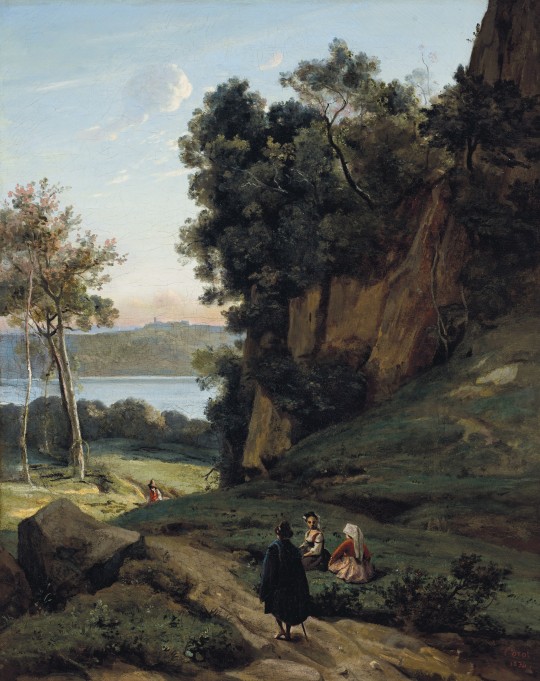
Italiens d’Albano by Jean-Baptiste-Camille Corot, 1834
In the early years of the 19th century there were two approaches to landscape taken in French art. The classical tradition, modeled after the great Italian landscapists Annibale Carracci and Salvator Rosa and the French painters Nicolas Poussin, Claude Lorrain and Gaspard Dughet, was experiencing a renaissance, fueled by the theories of Pierre-Henri de Valenciennes. These artists maintained the idealized historical landscape while at the same time renewing it with a more realistic depiction of nature. The artists who embraced this ideology all traveled to Italy, were inspired by the great French and Italian masters of the 17th century, and were all painters of historical landscapes, humanistic in approach and recomposed in the studio. During his early years, and under the tutelage of Achille-Etna Michallon, the young Camille Corot was introduced to this school of artistic thought.
In contrast to this imaginary, idealized landscape of the Neoclassicists, another approach to painting was realistic, intimate and faithful to the topography of the actual sites, drawing more on the example of Dutch and Flemish painters of the 17th and 18th centuries. These two tendencies should not be viewed as opposites and the ease with which the French painters of the early 19th century assimilated aspects of both theories cannot be ignored. Admiration for Poussin was compatible with enthusiasm for Ruisdael, while embracing the work of Claude did not discount the contributions of Hobbema.
At this time, French artists also discovered the realism of the late 18th century English landscape artists, particularly that of John Constable and Joseph Mallord William Turner. These English artists set forth a new vision with an emphasis on realism and expressiveness which would also influence Corot throughout his long career.
Corot entered the studio of Michallon in 1822 where he threw himself into landscape painting. Michallon died shortly thereafter, but he exerted a profound influence on the young Corot who wrote: ‘I made my first landscape from nature at Arceuil under the eye of this painter, whose only advice was to render with the greatest scrupulousness everything I saw before me. The lesson worked; since then I have always treasured precision’ (T. Silvestre, Histoire des artistes vivant, français et étrangers: Études après nature, Paris, 1853, p. 75).
Michallon passed on to Corot his feelings for the Classical landscape tradition and through his first teacher, Corot developed the foundation of his own art, finding a balance between the realism of plein-air painting and the application of memory and imagination to works composed in the studio.
The young artist made his first trip to Italy in 1825 and remained there until 1828. While there he made numerous landscape and figure studies, architectural studies and spent a great deal of time studying the effects of light created by moving or still water and worked to master the play of light in space. Once back in France, Corot took great satisfaction in his Italian stay. He had amassed numerous studies which now embellished the walls of his studio, he had developed an excellent and unique technique for capturing nature and he had grappled with and succeeded at composing a large studio landscape which had been accepted by the Salon.
For Corot at this time, the study was an essential element that preceded the studio landscape. When working in the studio itself, the artist could dispense with the study, and instead rely on his memory and impressions. Italy had nourished his visual memories, and it was in this moment that Corot developed his passion for creating the souvenirs which would so dominate his later artistic career. The views he painted entirely or partially from nature on his return from Italy are regarded as among his most beautiful and accomplished. The artist demonstrated a complete mastery of perspective, light and construction that would pervade his life’s work and serve to inspire a generation of artists that would follow him.
In the years immediately following his return from his first trip to Italy, Corot exhibited frequently and regularly at the Salon. In 1831, he exhibited four paintings, in 1833, he exhibited one painting, and then in 1834, he showed three paintings, probably including the present lot under the title Site d’Italie. During this period, the paintings that he showed at the Salon had essentially two themes: views based upon his studies and memories of his trip to Italy, and views of the forest of Fontainebleau.
Italiens d’Albano was composed in Corot’s studio in 1834, most likely just before his second trip to Italy which lasted only six months. The work incorporates the artist’s memories of this picturesque area just outside Rome where he spent a significant amount of time during his first excursion abroad. The classical influence of his formative years under the tutelage of Michallon and his second teacher Jean-Victor Bertin is clearly demonstrated in Italiens d’Albano; however, all of the elements that contributed to the successes of his later career and earned him the title ‘Poet of the Landscape’ are evident in this charming painting.
The artist has adroitly mastered the aerial perspective, leading the eye of the viewer from a point above the landscape itself, down the winding path, through the light green meadow and to the shores of Lake Albano. The artist’s penchant for dividing the landscape into distinct fore, middle and background is accomplished with the addition of figural groups; the caped figure walking the path by the two seated women, the man in the red vest walking up the hill, the shoreline of Lake Albano and the architectural element in the far background all work together seamlessly to take the viewer on a walk through a landscape. The effects of light and shadow on the landscape itself, from the darkened rocky outcroppings that dominate the right side of the painting, to the sunlight illuminating the middle ground, to the shimmering water under the clear Italian sky in the near background, demonstrate the burgeoning abilities of an artist who would ultimately become the spiritual link between Poussin and Sisley, Claude Lorrain and Monet.
18 notes
·
View notes
Text
The diary of a Norwegian troll
[Sorry for my bad English, I'm French. I do my best]
My oldest memories date from my 5 years.
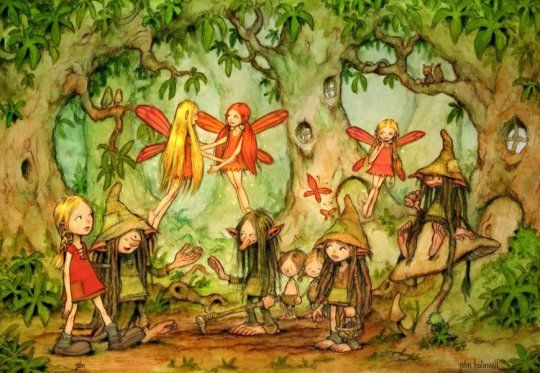
I remember my last year of kindergarten. During this period, I had a "click" compared to other children my age. I quickly felt out of step. First of all because my way of defending myself was very childish but also because I was a clumsy, hypersensitive, anxious, nervous, anxious, obsessive, maybe even having a certain dyspraxia. I was diagnosed much later with Asperger's.
It is true that, since my elementary school, I have always had the role of the "scapegoat". I couldn't integrate myself. They called me "the plague". I was the contagious beast that you should never approach.
I do not know the exact origin of these mockery (which lasted until college). I have always been stigmatized by others without ever really understanding why. I wasn’t an unhappy kid though, it was just like that and that’s all, "fatality". Sometimes I was jealous of well-integrated people but nothing more.
Many children have been subjected to bullying at school. Many children have been stigmatized, described as "bizarre" or "different". And, while this is absolutely terrible, other children have experienced sexual assault. Not all of them, however, began to identify as creatures. No, in reality, something happened in my head. In fact, I began to consider myself "non-human." Maybe because of the stigma, maybe because of the disgust of the human being, or whatever.
After all, in my stories, humans always played the role of villains. At that time, I was already clearly saying to myself "I am not a human". I thought I was some kind of alien sent to Earth, on a mission or something like that. It must, among other things, explain my difference from other kids. I don't know if I really believed it, but I know I wanted to believe it. I thought I was close to Adi / Adibou, an alien character from a French video game / children's series.

I remember, at the end of the lessons, I explained to my "best friend" that my father secretly built a rocket to bring me back to my real planet.
In primary school, I started to read many fictions. Harry Potter being my favorite (especially fantastic creatures). I read about witches, fairies, vampires, dragons and werewolves. I felt like they could understand me better than anyone.
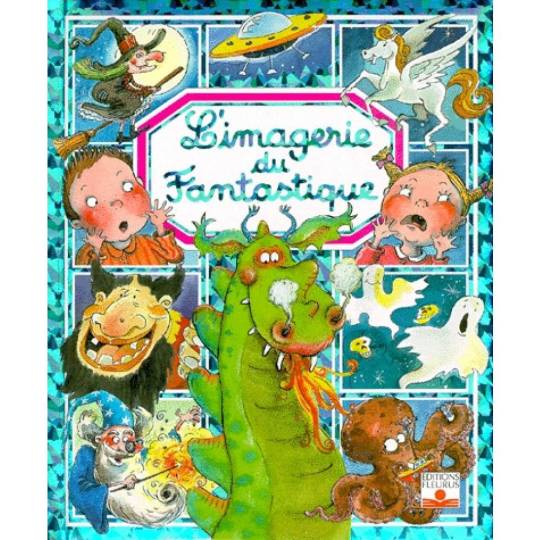
I particularly liked the comic strip "Witch". In this fiction, there is a “Metamonde” named “Méridian” populated by “hideous” but nice creatures. I felt good reading these stories and made up my life there, accompanied by these benevolent monsters.

My favorite scene was obviously the one where the professor turns into a monster: her true form.
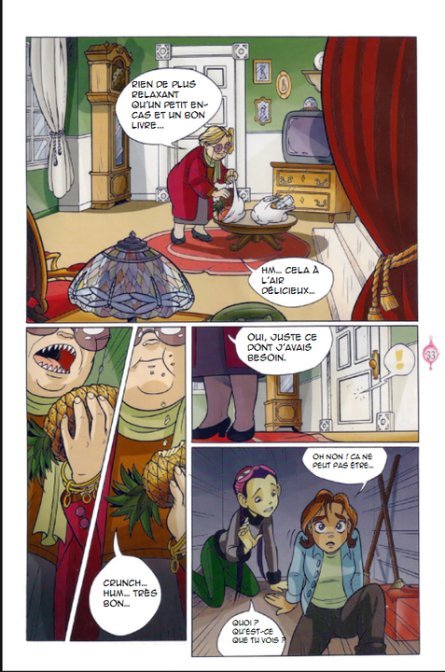
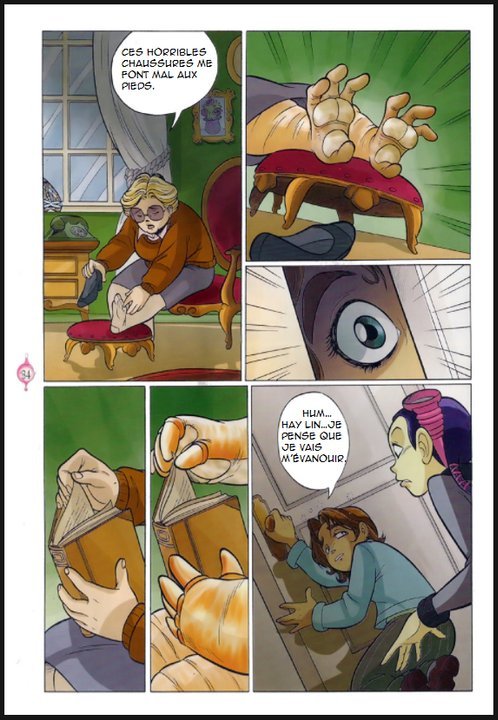

So I saw my creatures like this: Often green/brown skin, troll or elf ears, triangles on the coat, fangs, claws, often horns and a long tail.
I invented for them a new way of life, more wild and animal (because in this book, the beings of Méridian live as in the Middle Ages). I was this kind of alien from an alternative world, I also saw myself with a lion or cat tail. My imaginary diet consisted of insects, snakes, fruits and berries.
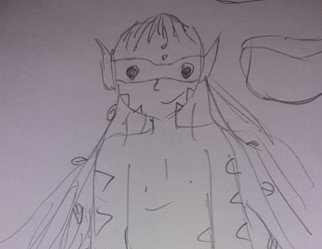
I saw myself living in a cave or a burrow (or a house like that of the Barbapapas / Teletubbies) and I developed a passion for digging in the ground. Listening to the song “dig a tunnel” (The Lion King 3), watching “The Magic School bus” or reading “My adventure under the ground” (French children's book) giving me real well-being and a feeling of inexplicable complicity with the characters. So, my aliens liked to play in the mud, get dirty, dig, collect insects and molluscs, just like me.
youtube
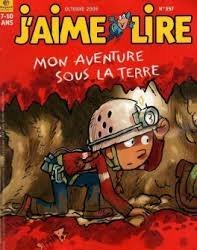
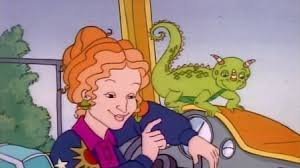
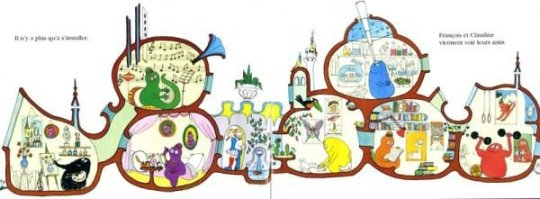
Our way of life was simple, a bit like Peter Pan's “lost boys”. The group behaviors were mainly animal (body, ear and tail position) and play and behave like animals (in one of my “fictions”, I said that the aliens bit their tails to play) .
youtube
Mine wore a simple loincloth, clothes didn't matter (just like for me in "real life".)
I remember a few anecdotes about my aliens: I imagined their daily life before sleeping or whenever I had time.
I don't prefer to go into details. I just remember that I had two imaginary best friends and I visualized them in our world as soon as possible. We had a special treasure, made up of spiders, snakes, insects, bones, feathers and snake molts, something that wicked human villains. My creatures could speak "human" but it was extremely painful for them.

Subsequently, I invented all kinds of stories of humans "not quite human" but these "aliens" were the first.
When I was 9 years old, I started to lock myself up mentally, to live only in my head. I discussed my creatures with my friends, my need to see them, to imagine their suffering as an outlet One of the girls spoke about it - at school - in the canteen, in front of all the students. I was so ashamed that I erased my texts with white corrector before tearing them up and throwing them in the trash (something I bitterly regret today).
Right after entering school, I reconciled with my mental critters and tried to accept them. During an alien-themed drawing assignment, I was shocked to see myself having a bad grade when I had a strong feeling of having shown the "absolute truth".
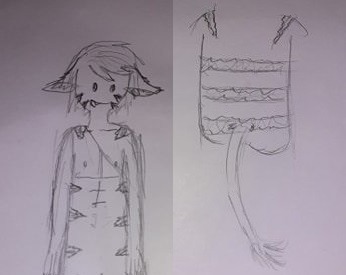
I also created a fiction about my aliens, to explain on the internet how they exist. Then I was ashamed, I was afraid of mockery, so I erased everything (I'm even more disappointed now).

When I was 12, I experienced the most incredible trip, that of visiting Norway. I saw the troll figurines, the songs, the landscapes and it was a revelation: I was also a troll, from the start! Everything matched: The physical, the way of living, the habitat, the food, the animality ... EVERYTHING! I later had this strong feeling of having an invisible tail and ears that only trolls could also see.
Small comparison between the creature of my 5 years and that with which I identify myself today:

Then, over time, I moved away from the trolls, I developed - badly influenced by "friends" - that I had to be a much more powerful and fierce creature, like a vampire or a werewolf. I was lost, turning sometimes to angels, sometimes to wizards: I was magic and non-human, it was obvious.
Screen capture from one of my blogs in 2011 (in French)

Translation : “I always felt a little different from others but for me all the weird phenomena I was going through were part of me! I thought everyone was like this! Then one day, I realized that what was happening to me was strange. I was a little panicked and asked on the internet if it was okay to act like this. Two people made me understand that no and that I should not worry because after all, I have always been like this and learning who I am will not change anything. For about a month, they didn't explain the basics to me, what to do and what not to do. Then, little by little, I tried to manage on my own, continuing to ask them for advice from time to time.” (2011)

Translation : “I’m a creature of the night, half animal half human “ (2011)

Traduction : "I am very close to nature, the forest is my favorite place. I feel close to plants and animals, maybe even more than human beings, I think. I am more animal than human." (2011)
"I feel different from other humans, I feel more like a 'forest human'. I feel constantly connected with nature and animals. I feel closer to animals (especially wolves and foxes) than men. Sometimes I feel like I can go so far as to lose control: I attack, I bite, I claw. Humans probably see me as a monster. " (2011)
See the movie Twilight played on my animality (I was young, too). And many people tried to convince me that I was an overpowered werewolf ...
Then I discovered the otherkins community in 2012, after very long researches to discover myself, I was disturbed by this resemblance. I then turned to therianthropy and the European badger, abandoning this "troll" side that was also in me ...
So today, I search over and over for ancient writings that would have survived. I'm trying to find bridles from my non-human childhood.

The troll must also be seen as a pillar of my existence. A pillar that, unfortunately, that I absolutely don’t assume ...
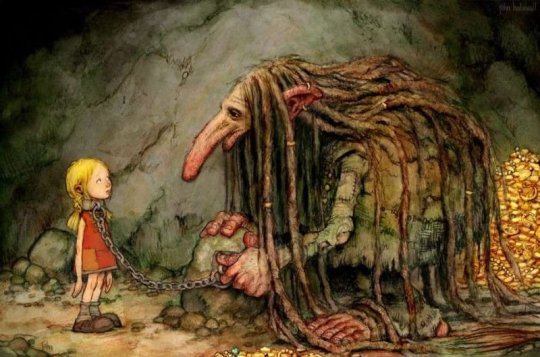
#otherkin#therian#french#français#english#anglais#identity#feeling#kin#shift#childhood#awake#awakening#troll#norway#theriomythic#phantom limbs#animal#alien#diary#reflection
17 notes
·
View notes
Note
Do you have any advice for someone who’s really struggling to study? I’m really stressed and demotivated, and I can’t seem to sit down and just study. In my country we only have virtual classes so maybe It has something to do with that, it’s really sad that it’s my first college year and I haven’t attended one single face to face class. Anyway, If you have any kind words I would really appreciate it. Love your blog btw <3
Hey! Thank you for this! And I’m very sorry you feel that way...just know you’re not alone, I think we’re all a bit ‘what’s the point’ rn, and for students (and teachers) this period must suck especially hard. I don’t know exactly what can work for you, but here are a few things that come to mind. I hope you can find something useful!
Have habits and routines. Our days are all over the place, which is not good for motivation or mental health. Instead of procrastinating, feeling guilty, working in a hurry and then feeling even worse, decide on a schedule that works for you. Don’t be too hard on yourself - give it as much time as you need to do the work well, and devote the rest of your day to stuff that makes you feel accomplished and serene (maybe learn or practice a non-screen skill, such as cooking or painting?).
And: at risk of sounding like a yoga mom, don’t forget about your body. Very often stuff like bad mood or exhaustion has physical, not mental, causes. Try to make time for sport - dancing in your underwear, running outside, walking the dog, online pilates, a 7-minute app - and, if you can, a few minutes of meditation, singing or breathing exercises every day. I’d recommend the ‘cardiac coherence’ stuff - lasts about 3 minutes, makes you feel really great. And: remember to stretch, smile and drink water throughout the day. If possible, go outside or have plants and flowers around you.
When it comes to habit, try to understand what kind of person you are and react accordingly. Some people work best when they change cold turkey (new day, new me), while for others it’s better to adjust things more slowly (for instance by moving the alarm clock forward five minutes every week or two). If you’re the second type, a method like Pomodoro could work well to organize your work schedule.
Have pretty things. Try switching to ink or coloured pens, have nice stationery, organize your Word documents so they’re neat and tidy, use candles, plants, ‘good mood’ incense - whatever makes you feel your work has meaning and worth.
Try background music. Some people work better with noise, and you can find all kind of noises online, from stations to coffee shops to purring cats. Others like classical music. For me, what works is video game music, which is designed to keep you alert and focused while being unobtrusive.
Try to keep your workspace as similar as possible to a ‘real’ workspace. No stack of dirty mugs and plates, no abandoned pajama bottoms. If you can manage it, start your day as if you were actually going outside - dress for actual human company, put on make-up if you like to - and remember to prepare your desk the night before: textbooks, charged laptop, notebooks, water bottle, possibly a diary or a motivational quote or anything you find useful.
If it helps, study with friends or classmates. Have video meetings, chats or shared Google docs and work together. Rant with people who’re going through the same thing, but also find a way to help one another. If you live with flatmates or family members, maybe you can find a moment to work together on your separate things? Dad does admin, mom prepares a work presentation, you do your homework and that’s ‘work time’ for everyone?
Divide your tasks. Make clear lists of what you have to do - as detailed as possible (not: shakespeare essay, but: 1. read book, 2. write essay, 2b. introduction and so on) and pay attention to when the stuff is due, either writing it down in agendas or post-its or creating alerts on your phone. Some people also like the square of doom (you know, that ‘important + urgent’, ‘important + non urgent’ thingy).
Keep track of what you’re doing if you find it helps you. There are good apps for this, or you can use a nice journal or an Excel sheet. Track whatever you want - minutes of study, words learned, tasks accomplished...a favourite of mine is ‘a time logger’, which can track your entire day. When I was in uni, it made me realize I was working a lot more than I thought, and reaching daily goals kept me motivated.
Rethink your internet consumption, especially news, TV shows and social media. Try having periods where you go off-screen whenever you need a break. Stuff like, ‘no TV before 6 pm’ or ‘no tumblr on weekdays’ can automatically make you a lot less stressed and a lot more productive.
You can also decide to modify the way you engage with these things. For instance, if your studies involve a language, you could watch only TV shows in [language], or turn on [language] subtitles, or you could switch to Buzzfeed [country]. If you like IG, pinterest or tumblr, try having a separate ‘weekday’ account which is about healthy escapism and/or accountability: landscapes and poetry instead of fandom content, or a personal blog about your day - use the right tags and connect with others who’re going through the same thing.
Imagine you’re teaching someone. I’m guessing you’re passionate about your subject, so turn your study sessions into imaginary conversations. Teaching a lesson (or making a speech) is often the best way to see what you understand, what you need to work on, and what you’re interested in learning more about.
Websites like b-ok can help you find books about your subject (or not) - possibly stuff you’re not actually compelled to read, but which sounds interesting nonetheless. Broaden your horizon, discover different stuff, and sooner or later you’ll find yourself making connections between the exciting stuff you’re basically reading for fun and the actual subject you’re studying.
And: remember why you’re studying this. What are you passionate about? Why did you fall in love with your subject? Why are you studying it? Sometimes we have to endure a few boring classes to get to the good part, and that’s okay.
And finally: visualize the future. The world will get better, and at some point you’ll be glad you’ve spent a few (or many) hard and boring hours getting your degree. What are you going to do after this? Make a ‘future’ board, write a fake Wikipedia article about yourself, give a Nobel or graduation speech, give a pep talk to your (imaginary) future children about the hardships you faced on Zoom and how you overcame them to become the mom they know and love. Whatever works, no matter how ridiculous or narcissistic or far-fetched is a good thing!
I hope this helps! Remember to remain calm and positive, and talk to yourself as if you were talking to a child or a best friend. Less You suck and the world is going to end and more Yes, you didn’t do great today, but we can always do better tomorrow, it’s okay to have an off day! Uni is hard enough under any circumstances, and right now...do your best and resist the bait of dark thoughts: we will get through this, and everything will be alright. It’s how it works.
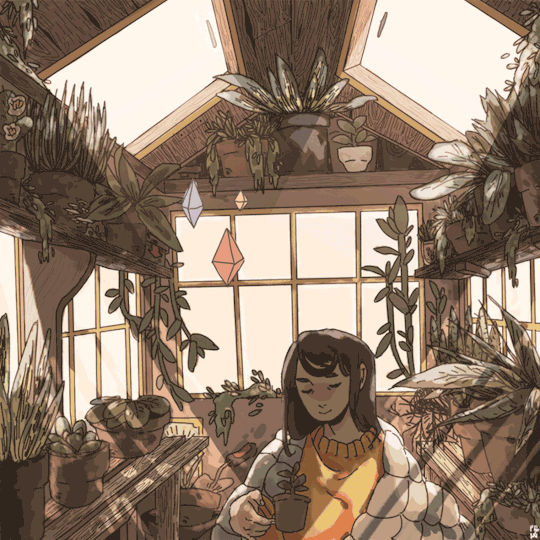
#ask#studying#students problems#life tips#life advice#motivation#anxiety#mental help#singing about the dark times#you can do this <3
29 notes
·
View notes
Text
Song of the Open Road by Walt Whitman
1
Afoot and light-hearted I take to the open road,
Healthy, free, the world before me,
The long brown path before me leading wherever I choose.
Henceforth I ask not good-fortune, I myself am good-fortune,
Henceforth I whimper no more, postpone no more, need nothing,
Done with indoor complaints, libraries, querulous criticisms,
Strong and content I travel the open road.
The earth, that is sufficient,
I do not want the constellations any nearer,
I know they are very well where they are,
I know they suffice for those who belong to them.
(Still here I carry my old delicious burdens,
I carry them, men and women, I carry them with me wherever I go,
I swear it is impossible for me to get rid of them,
I am fill’d with them, and I will fill them in return.)
2
You road I enter upon and look around, I believe you are not all that is here,
I believe that much unseen is also here.
Here the profound lesson of reception, nor preference nor denial,
The black with his woolly head, the felon, the diseas’d, the illiterate person, are not denied;
The birth, the hasting after the physician, the beggar’s tramp, the drunkard’s stagger, the laughing party of mechanics,
The escaped youth, the rich person’s carriage, the fop, the eloping couple,
The early market-man, the hearse, the moving of furniture into the town, the return back from the town,
They pass, I also pass, any thing passes, none can be interdicted,
None but are accepted, none but shall be dear to me.
3
You air that serves me with breath to speak!
You objects that call from diffusion my meanings and give them shape!
You light that wraps me and all things in delicate equable showers!
You paths worn in the irregular hollows by the roadsides!
I believe you are latent with unseen existences, you are so dear to me.
You flagg’d walks of the cities! you strong curbs at the edges!
You ferries! you planks and posts of wharves! you timber-lined sides! you distant ships!
You rows of houses! you window-pierc’d façades! you roofs!
You porches and entrances! you copings and iron guards!
You windows whose transparent shells might expose so much!
You doors and ascending steps! you arches!
You gray stones of interminable pavements! you trodden crossings!
From all that has touch’d you I believe you have imparted to yourselves, and now would impart the same secretly to me,
From the living and the dead you have peopled your impassive surfaces, and the spirits thereof would be evident and amicable with me.
4
The earth expanding right hand and left hand,
The picture alive, every part in its best light,
The music falling in where it is wanted, and stopping where it is not wanted,
The cheerful voice of the public road, the gay fresh sentiment of the road.
O highway I travel, do you say to me Do not leave me?
Do you say Venture not—if you leave me you are lost?
Do you say I am already prepared, I am well-beaten and undenied, adhere to me?
O public road, I say back I am not afraid to leave you, yet I love you,
You express me better than I can express myself,
You shall be more to me than my poem.
I think heroic deeds were all conceiv’d in the open air, and all free poems also,
I think I could stop here myself and do miracles,
I think whatever I shall meet on the road I shall like, and whoever beholds me shall like me,
I think whoever I see must be happy.
5
From this hour I ordain myself loos’d of limits and imaginary lines,
Going where I list, my own master total and absolute,
Listening to others, considering well what they say,
Pausing, searching, receiving, contemplating,
Gently,but with undeniable will, divesting myself of the holds that would hold me.
I inhale great draughts of space,
The east and the west are mine, and the north and the south are mine.
I am larger, better than I thought,
I did not know I held so much goodness.
All seems beautiful to me,
I can repeat over to men and women You have done such good to me I would do the same to you,
I will recruit for myself and you as I go,
I will scatter myself among men and women as I go,
I will toss a new gladness and roughness among them,
Whoever denies me it shall not trouble me,
Whoever accepts me he or she shall be blessed and shall bless me.
6
Now if a thousand perfect men were to appear it would not amaze me,
Now if a thousand beautiful forms of women appear’d it would not astonish me.
Now I see the secret of the making of the best persons,
It is to grow in the open air and to eat and sleep with the earth.
Here a great personal deed has room,
(Such a deed seizes upon the hearts of the whole race of men,
Its effusion of strength and will overwhelms law and mocks all authority and all argument against it.)
Here is the test of wisdom,
Wisdom is not finally tested in schools,
Wisdom cannot be pass’d from one having it to another not having it,
Wisdom is of the soul, is not susceptible of proof, is its own proof,
Applies to all stages and objects and qualities and is content,
Is the certainty of the reality and immortality of things, and the excellence of things;
Something there is in the float of the sight of things that provokes it out of the soul.
Now I re-examine philosophies and religions,
They may prove well in lecture-rooms, yet not prove at all under the spacious clouds and along the landscape and flowing currents.
Here is realization,
Here is a man tallied—he realizes here what he has in him,
The past, the future, majesty, love—if they are vacant of you, you are vacant of them.
Only the kernel of every object nourishes;
Where is he who tears off the husks for you and me?
Where is he that undoes stratagems and envelopes for you and me?
Here is adhesiveness, it is not previously fashion’d, it is apropos;
Do you know what it is as you pass to be loved by strangers?
Do you know the talk of those turning eye-balls?
7
Here is the efflux of the soul,
The efflux of the soul comes from within through embower’d gates, ever provoking questions,
These yearnings why are they? these thoughts in the darkness why are they?
Why are there men and women that while they are nigh me the sunlight expands my blood?
Why when they leave me do my pennants of joy sink flat and lank?
Why are there trees I never walk under but large and melodious thoughts descend upon me?
(I think they hang there winter and summer on those trees and always drop fruit as I pass;)
What is it I interchange so suddenly with strangers?
What with some driver as I ride on the seat by his side?
What with some fisherman drawing his seine by the shore as I walk by and pause?
What gives me to be free to a woman’s and man’s good-will? what gives them to be free to mine?
8
The efflux of the soul is happiness, here is happiness,
I think it pervades the open air, waiting at all times,
Now it flows unto us, we are rightly charged.
Here rises the fluid and attaching character,
The fluid and attaching character is the freshness and sweetness of man and woman,
(The herbs of the morning sprout no fresher and sweeter every day out of the roots of themselves, than it sprouts fresh and sweet continually out of itself.)
Toward the fluid and attaching character exudes the sweat of the love of young and old,
From it falls distill’d the charm that mocks beauty and attainments,
Toward it heaves the shuddering longing ache of contact.
9
Allons! whoever you are come travel with me!
Traveling with me you find what never tires.
The earth never tires,
The earth is rude, silent, incomprehensible at first, Nature is rude and incomprehensible at first,
Be not discouraged, keep on, there are divine things well envelop’d,
I swear to you there are divine things more beautiful than words can tell.
Allons! we must not stop here,
However sweet these laid-up stores, however convenient this dwelling we cannot remain here,
However shelter’d this port and however calm these waters we must not anchor here,
However welcome the hospitality that surrounds us we are permitted to receive it but a little while.
10
Allons! the inducements shall be greater,
We will sail pathless and wild seas,
We will go where winds blow, waves dash, and the Yankee clipper speeds by under full sail.
Allons! with power, liberty, the earth, the elements,
Health, defiance, gayety, self-esteem, curiosity;
Allons! from all formules!
From your formules, O bat-eyed and materialistic priests.
The stale cadaver blocks up the passage—the burial waits no longer.
Allons! yet take warning!
He traveling with me needs the best blood, thews, endurance,
None may come to the trial till he or she bring courage and health,
Come not here if you have already spent the best of yourself,
Only those may come who come in sweet and determin’d bodies,
No diseas’d person, no rum-drinker or venereal taint is permitted here.
(I and mine do not convince by arguments, similes, rhymes,
We convince by our presence.)
11
Listen! I will be honest with you,
I do not offer the old smooth prizes, but offer rough new prizes,
These are the days that must happen to you:
You shall not heap up what is call’d riches,
You shall scatter with lavish hand all that you earn or achieve,
You but arrive at the city to which you were destin’d, you hardly settle yourself to satisfaction before you are call’d by an irresistible call to depart,
You shall be treated to the ironical smiles and mockings of those who remain behind you,
What beckonings of love you receive you shall only answer with passionate kisses of parting,
You shall not allow the hold of those who spread their reach’d hands toward you.
12
Allons! after the great Companions, and to belong to them!
They too are on the road—they are the swift and majestic men—they are the greatest women,
Enjoyers of calms of seas and storms of seas,
Sailors of many a ship, walkers of many a mile of land,
Habituès of many distant countries, habituès of far-distant dwellings,
Trusters of men and women, observers of cities, solitary toilers,
Pausers and contemplators of tufts, blossoms, shells of the shore,
Dancers at wedding-dances, kissers of brides, tender helpers of children, bearers of children,
Soldiers of revolts, standers by gaping graves, lowerers-down of coffins,
Journeyers over consecutive seasons, over the years, the curious years each emerging from that which preceded it,
Journeyers as with companions, namely their own diverse phases,
Forth-steppers from the latent unrealized baby-days,
Journeyers gayly with their own youth, journeyers with their bearded and well-grain’d manhood,
Journeyers with their womanhood, ample, unsurpass’d, content,
Journeyers with their own sublime old age of manhood or womanhood,
Old age, calm, expanded, broad with the haughty breadth of the universe,
Old age, flowing free with the delicious near-by freedom of death.
13
Allons! to that which is endless as it was beginningless,
To undergo much, tramps of days, rests of nights,
To merge all in the travel they tend to, and the days and nights they tend to,
Again to merge them in the start of superior journeys,
To see nothing anywhere but what you may reach it and pass it,
To conceive no time, however distant, but what you may reach it and pass it,
To look up or down no road but it stretches and waits for you, however long but it stretches and waits for you,
To see no being, not God’s or any, but you also go thither,
To see no possession but you may possess it, enjoying all without labor or purchase, abstracting the feast yet not abstracting one particle of it,
To take the best of the farmer’s farm and the rich man’s elegant villa, and the chaste blessings of the well-married couple, and the fruits of orchards and flowers of gardens,
To take to your use out of the compact cities as you pass through,
To carry buildings and streets with you afterward wherever you go,
To gather the minds of men out of their brains as you encounter them, to gather the love out of their hearts,
To take your lovers on the road with you, for all that you leave them behind you,
To know the universe itself as a road, as many roads, as roads for traveling souls.
All parts away for the progress of souls,
All religion, all solid things, arts, governments—all that was or is apparent upon this globe or any globe, falls into niches and corners before the procession of souls along the grand roads of the universe.
Of the progress of the souls of men and women along the grand roads of the universe, all other progress is the needed emblem and sustenance.
Forever alive, forever forward,
Stately, solemn, sad, withdrawn, baffled, mad, turbulent, feeble, dissatisfied,
Desperate, proud, fond, sick, accepted by men, rejected by men,
They go! they go! I know that they go, but I know not where they go,
But I know that they go toward the best—toward something great.
Whoever you are, come forth! or man or woman come forth!
You must not stay sleeping and dallying there in the house, though you built it, or though it has been built for you.
Out of the dark confinement! out from behind the screen!
It is useless to protest, I know all and expose it.
Behold through you as bad as the rest,
Through the laughter, dancing, dining, supping, of people,
Inside of dresses and ornaments, inside of those wash’d and trimm’d faces,
Behold a secret silent loathing and despair.
No husband, no wife, no friend, trusted to hear the confession,
Another self, a duplicate of every one, skulking and hiding it goes,
Formless and wordless through the streets of the cities, polite and bland in the parlors,
In the cars of railroads, in steamboats, in the public assembly,
Home to the houses of men and women, at the table, in the bedroom, everywhere,
Smartly attired, countenance smiling, form upright, death under the breast-bones, hell under the skull-bones,
Under the broadcloth and gloves, under the ribbons and artificial flowers,
Keeping fair with the customs, speaking not a syllable of itself,
Speaking of any thing else but never of itself.
14
Allons! through struggles and wars!
The goal that was named cannot be countermanded.
Have the past struggles succeeded?
What has succeeded? yourself? your nation? Nature?
Now understand me well—it is provided in the essence of things that from any fruition of success, no matter what, shall come forth something to make a greater struggle necessary.
My call is the call of battle, I nourish active rebellion,
He going with me must go well arm’d,
He going with me goes often with spare diet, poverty, angry enemies, desertions.
15
Allons! the road is before us!
It is safe—I have tried it—my own feet have tried it well—be not detain’d!
Let the paper remain on the desk unwritten, and the book on the shelf unopen’d!
Let the tools remain in the workshop! let the money remain unearn’d!
Let the school stand! mind not the cry of the teacher!
Let the preacher preach in his pulpit! let the lawyer plead in the court, and the judge expound the law.
Camerado, I give you my hand!
I give you my love more precious than money,
I give you myself before preaching or law;
Will you give me yourself? will you come travel with me?
Shall we stick by each other as long as we live?
8 notes
·
View notes
Text
Life in Audrilluria- Chapter 2: Our Garden
Life in Audrilluria Masterlist
Heart of Audrilluria Masterlist
King!Tom Hiddleston x Thief! Reader
This Chapter Contains: Self-doubt, hints of a disagreement, Fluff, Soft Thomas, slow dance, Multiple references to Heart of Audrilluria, Cliffhanger ending

Thomas sped through the garden’s entrance, knowing he was ten minutes late to his lunch date with Y/N. He’d sent a server to let her know that the meeting dragged on a bit and he would be late, but being the gentleman he was, he didn’t like keeping people waiting. Especially not his queen. Taking the short route through the garden, he made his way to the gazebo he instructed her to meet him at after the meeting was over. A small feeling of dread appeared in his stomach at the thought of the meeting. To say it didn’t go so well would be a complete understatement. And the mere thought of having to tell Y/N how it went caused the dread to grow stronger. He had to tell her. The question is if he could handle whatever the outcome would be.
Thomas shook his head, deciding to focus on finding Y/N. He’ll cross that bridge when he gets to it. Turning the final corner, the gazebo was in sight and Y/N was waiting, admiring the flowers that surrounded the structure. Thomas slowed his pace, marveling at the sight of her surrounded by the beautiful flowers. Even when standing in the garden, she was the most beautiful sight in his eyes. Y/N turned to him, finally noticing his presence, and smiled lovingly. Thomas snapped out of his trance, reciprocating the smile as he approached her. Once he was a few feet away, he held out his hand to her, “Pardon my tardiness, my dear. The meeting took longer than I anticipated.” Y/N took his hand, “It’s alright. You’re a king, I understand you’ll be held up by meetings in order to help your people.”
“Our people,” he corrected, leading her to the table waiting inside. Her expression changed a bit, quickly changing back to the smile before Thomas could decipher what she felt. He pulled out her chair for her, being the gentleman he was raised to be, and waited for her to sit before he pushed it in. He then made his way over to his seat and sat down. Both took their respective napkins and placed them on their lap before removing the silver cloches and placing them on a cart next to the table. Thomas then took the teapot and poured the liquid into a cup for her and one for himself. They began to enjoy their meal and drinks in silence at first before Y/N spoke up. “So how was the meeting?” she asked, taking a sip of the tea.
Thomas felt his stomach fall slightly, knowing that he had to tell her about the meeting in detail. “It was eventful,” he replied softly, placing the cup back in its saucer. “How so?” Y/N asked with a smile, giving him her full attention. Thomas looked into her eyes, trying to find the correct words to say in this situation. He didn’t want to spoil their first lunch together, but the meeting was something that had to be discussed. “There were several questions about the recent events,” he began carefully, “People wanted to know about the stolen replica jewels and what was being done to prevent something like that happening again.” Y/N became visibly uneasy, knowing where this would go. Thomas noticed this instantly, reaching to hold her hand from the other side of the table. “We don’t have to talk about this if you don’t want to,” he offered. Y/N shook her head, “I want to get it out of the way. I knew this was going to happen eventually.” Thomas let out a deep sigh, running his thumb over her knuckles as a small form of comfort. He kept a soft expression on his face as he began to arrange his words in a way that would gently let her know everything she wanted to know.
“The press began to ask questions about the people responsible for what happened,” he spoke softly, “I answered honestly and mentioned the situation you were forced into.” Y/N simply nodded, taking in every word he said. “I spoke about the changes I plan on implementing to make sure nothing like that ever comes close to happening again,” he continued, “I focussed on the changes coming to the castle’s security.” Y/N spoke up suddenly, addressing something that had been bothering her, “Did they ask for a trial?” Thomas’s breath hitched, making a pit form in his stomach. “Yes,” he muttered, “But I assure you I--”
“We knew that was going to happen,” Y/N interrupted, “The people want justice for what I did.”
“What Vie made you do.”
“What’s the difference?” Y/N questioned, “I was the one that made the plan. I took the replica. I betrayed your trust. That was all me.” She pulled her hand out of his, letting her head drop to her shoulders. “Vie only threatened us. We were the ones that made sure the heist was a success,” she whispered solemnly, “We made that choice. Not her.” Thomas felt the pit in his stomach grow. He’d only known Y/N for a short time but was able to recognize when she felt guilt. He recognized when she thought lowly of herself. He recognized the look of sorrow in her eyes. He’d seen it before, in this exact location. The day of their ‘date’, Thomas swore to himself that he would do anything in his power to make sure her eyes never shed another sorrowful tear. He knew his promise to himself was close to being broken and he couldn’t let that happen. In an instant, he was able to think of something that would lift her spirits. Something he hadn’t done since the coronation.
Thomas stood, moving around the table towards her. Becoming more determined with every step he took, he stopped right next to her chair. He offered his hand for her to take, silently urging her to take it. Y/N lifted her head, finally looking up at him. Confusion laced her features as she tried to decipher what was going on. “May I have this dance?” he asked, giving her that same look she fell for in the first place. Sighing, she took his hand unable to contain the smile that was slowly forming. Gently pulling her to her feet, Thomas wrapped his arms around her. He held her close as he looked deeply into her eyes, leading her to the rhythm of an imaginary song playing only in his head.
They swayed gracefully, moving further away from the structure with every step they took. All the while, they never broke eye contact, seemingly lost in the wondrous abyss that was hidden in each other's eyes. The silence between them was filled by the soft, distant sounds of running water from the fountains nearby as well as the chirping of birds living in the garden. It was absolute bliss. To be embraced by Thomas as he led her through a dance was heaven to Y/N. Once more they were trapped in their own little world, focussing only on each other as they forgot about the rest of the world for a sweet moment.
Thomas’s movements slowly came to a stop, twirling Y/N one last time before wrapping his arms around her. He leaned in and pressed a loving kiss to her lips. She instantly reacted, leaning into him further as he wordlessly expressed every ounce of passion he felt for her. When the need for air became too unbearable to ignore, they pulled away slowly, once more looking into each other’s eyes. They took a moment to breathe, still holding one another before the silence was interrupted. “I brought you back fully intending to have you by my side. I brought you here so that I could give you the life you deserve. I made that promise to myself and I will fight with teeth and nails to fulfill it. I swear to you that this will be over soon and I will give you the peaceful life I told you about,” Thomas whispered, taking both her hands in his, “I said to you that I want to spend every day knowing I can come home to you. I told you I want to stay here with you by my side and enjoy life. I want to escape all my problems with you. I meant every word I said that day. And no matter what I have to do, you and I will have that life.”
Y/N gave him a hopeful smile, realizing with every word that she fell for him a little more with every little moment like this. She leaned her head on his chest, letting him wrap his arms around her again. “Ok,” she murmured, “I trust you.” Thomas let his chin rest on the top of her head, focussing on her breathing as he held her close. This is how he wanted to stay; with her safely in his arms as they enjoyed each other’s company and ignored their problems for a while. This form of simplicity was all he wanted with her. And he was one step closer to having it.
Y/N pulled away suddenly, looking up at him with a smile. “I believe the last time I was here, I wasn’t able to have the full tour of the garden,” she mentioned, “Would your majesty be so kind as to show me around?” Thomas smiled brightly, taking her hand in his. “I would love to,” Thomas cooed, pressing a soft kiss to the back of her hand. He then began leading her through a part of the garden she hadn’t been before, beginning their long journey through--what was now-- their garden.
~~~~~~
The sun was setting on the horizon, making the garden’s plantlife glow in an orange-ish, yellow hue. Thomas led Y/N to a bench located near a rose-covered arch that gave a perfect view of the sunset through some of the garden’s landscape. They both sat contently, having enjoyed their day together in their garden, and having just a taste of what the rest of their lives together would be like. “This is the best place from where to watch the sunset,” Thomas commented, holding on to Y/N’s hand even as they sat. Y/N took in a deep breath, appreciating the relaxing moment she got to share with her love. She had her eyes fixed on the view before them while Thomas’s eyes wandered over to her. He couldn’t believe how lucky he was to have her by his side, despite everything that had happened. He knew the instant she stepped foot in his life that he would go through unmeasurable lengths to protect her and have her feel safe in his arms. With her, he could finally have the simple life he longed for.
“Thomas! Y/N!” a voice called from behind them. Both turned to see Augustus running to them, looking distressed. He approached them, coming to a full stop a few feet away from the bench. “I’ve been looking for the two of you all day!” he exclaimed out of breath, “You have to come back to the castle immediately!” Thomas stood, fully facing him as he spoke, “What’s wrong?” Y/N stood as well, concern lacing her features as Augustus caught his breath. “Some of the nobles have returned,” he explained, “They want answers about what happened during the coronation.” Thomas’s features hardened, instinctively moving closer to Y/N. “How many?” Thomas asked bluntly, taking a protective stance. “Five so far,” he responded, “There is something else. There’s word that someone informed the Spanish Marquess about the imposters.”
Y/N’s breath hitched as she listened to those words fall from Augustus’s lips. “Thomas,” he whispered shakily, trying his best not to seem too afraid of the situation.
“I’ve been told he is on his way.”

A/N: This was a short chapter, but it’s setting the scene for some really juicy stuff coming in later chapters. It’s been a while and this was LONG overdue. I took a long time to post it and get my shit together, but here we are!! I hope you enjoyed this relatively short chapter!! What did you think? Please feel free to let me know as feedback is appreciated and encouraged!! Thanks for reading and I really hoped you enjoyed it!! Stay safe, Stay proud, be careful out there, and I love you!! I hope all is well in your corner of this crazy world!! 😘💜💜💜💜💜💜💜
Also, the tags have been acting up lately, and Idk why. If you didn’t get a notification, please let me know so I can think of some alternative!!
Taglist is OPEN
@ladyblablabla , @tvdplusriverdale , @pipolaki , @myraiswack , @shockwavee , @harringtonb-blog , @cynic-spirit , @little-moonbeam-666 , @ochizokulevy , @swifitiedaylight, @blue-honey-bee-from-france @scorpionchild81 , @imnotrevealingmyname @whathefuckrichard69 @frostedgiant @falling4uke @accio-boys @ashcrimson-is-writing @just-trying-to-survive-marvel @allthecreativeonesaretaken @hunterofartemisblog @sea040561 @strangersstranger
#tom hiddelston x reader#tom hiddelston imagine#tom hiddelson#tom hiddleston#thomas hiddleston#loki fanfic#tom hiddles#thomas william hiddleston#loki fandom#tom hiddleston imagine#tom hiddleston x reader#tom hiddleston x ofc#tom hiddleston x you#thomas hiddleston x reader#heart of audrilluria
40 notes
·
View notes
Text
Snowflakes
Summary: Jeffrey knows you’re not feeling well, so he has a little surprise for you during a snowy winter day.
Parings: JDM x Reader ( @littlebadgirly)
Warnings: FLUFFING FLUFFITY FLUFF!
A/N: This was a Request from my sweet girl @littlebadgirly because she isn’t feeling well and needs some JDM-Comfort <3 I hope, I am able to make you feel a little better with this story, hun!

Hidden underneath the soft plush of the cozy blanket, you watched the little snowflakes outside the window, humming quietly by the relaxing sound of fire crackling in the fireplace in front of you. You didn’t quite actually know what was wrong, but you just felt emotionally exhausted and weren’t really able to do anything besides getting up, scuffling to the couch and sealing off from the outer world.
You felt a soft body against yours, hugging you tightly and a small smile faded across your lips as Jeff traced soft kisses along your neckline, humming quietly in appreciation.
“Babygirl…I have a surprise for you”
His scruffy beard leaving goosebumps all over your sensitive skin, while his lips followed an imaginary trail from your neck to your collarbone, gently nipping on your skin while his fingertips slowly removed the blanket off your body.
You could feel Jeff’s hands cupping your face softly, his hazel eyes glowing with pure joy and anticipation of what he has planned for you, his sweet princess Bayan.
He gently took your small hands into his, helping you get up and get dressed for outside in your warm cosy winter jacket.
You could feel a soft fabric on your eyes, but as soon as you wanted to protest being blindfolded by him, he shushed you with his index finger on your soft lips.
“Daddy’s gonna take care of you, Sweetheart”
With one strong move, he lifted you up into his strong arms and carried you outside. You could hear the faintly noises of snow underneath his shoes, nestling your face against his neck to breathe in his scent. Distant noises of animals echoed through the woods and you were baffled as soon as you saw a horse carriage, equipped with loads of fluffy blankets and soft cushions, eliciting a joyous squeak from your lips. Jeffrey gently placed you into the carriage and tucked you in tightly with the soft blankets, making sure you were comfortable.

With one swift movement, he sat next to you, hugged you tightly and gestured the chauffeur to carry the both of you into the snowy beautiful landscape behind his farm.
“Fuck. It’s so freakin’ cold, I think my dick might actually fucking shrink”
He giggled into your ear, eliciting a chuckle from your lips as well and gently stroked through your snowflake covered hair.
“Bayan, Babygirl…I fucking love you. Don’t you forget that! I always take care of you. Daddy’s always gonna be here for you. No matter what!”
Jeff cupped your face into his strong hands, pressing gentle kisses on your trembling lips.
“Thank you, Daddy. I love you, too. This is so romantic.”
You whisper in his ear, now your turn leaving gentle kisses on his jawline while you nestle yourself closer to his warm body.
Dwelling in that beautiful moment you shared with Jeff, you didn’t register his slight tension while grabbing something small out of his pocket.
He gently stroked a strand of your snowflake covered hair behind your ear, placing his shivering fingers on your cheek to move your face to look at him. Biting his lower lip in anticipation, he tucked your tiny hand into his, interlacing your both fingers together as his hazel eyes sparkled at you.
“Bayan, Babygirl…Will you give me the honour of being the luckiest man a-fucking-live and marry me?”
You could see him exhale as soon as the question left his lips, almost starring at you now with puppy eyes, wating for your answer while he still cups your face, gently stroking your soft skin.
You were overwhelmed, not being able to form words yet as some tears began to dwell in the corner of your eyes. Nodding full of joy, you cradled his lap. Your eyes glimpsing from the velvet covered ring box back to his sparkling eyes.
Your passionate kiss being the answer to his question.
#request#jeffrey dean morgan#jdm#jdmorgan#jeffrey daddy morgan#emotional support#fluff#fluffy#sweet#romantic#horse carriage#carriage#wedding#proposal#cute#adorable
18 notes
·
View notes
Text
Smuggler
“Then what are you complaining about?”
“About hypocrisy. About lies. About misrepresentation. About that smuggler’s behavior to which you drive the uranist.”
—André Gide, Corydon, Fourth Dialogue
1.
I REMEMBER MY first kiss with absolute clarity. I was reading on a black chaise longue, upholstered with shiny velour, and it was right after dinner, the hour of freedom before I was obliged to begin my homework. I was sixteen.
It must have been early autumn or late spring, because I know I was in school at the time, and the sun was still out. I was shocked and thrilled by it, and reading that passage, from a novel by Hermann Hesse, made the book feel intensely real, fusing Hesse’s imaginary world with the physical object I was holding in my hands. I looked down at it, and back at the words on the page, and then around the room, which was empty, and I felt a keen and deep sense of discovery and shame. Something new had entered my life, undetected by anyone else, delivered safely and surreptitiously to me alone. To borrow an idea from André Gide, I had become a smuggler.
It wasn’t, of course, the first kiss I had encountered in a book. But this was the first kiss between two boys, characters in Beneath the Wheel, a short, sad novel about a sensitive student who gains admission to an elite school but then fails, quickly and inexorably, after he becomes entwined in friendship with a reckless, poetic classmate. I was stunned by their encounter—which most readers, and almost certainly Hesse himself, would have assigned to that liminal stage of adolescence before boys turn definitively to heterosexual interests. For me, however, it was the first evidence that I wasn’t entirely alone in my own desires. It made my loneliness seem more present to me, more intelligible and tangible, and something that could be named. Even more shocking was the innocence with which Hesse presented it:
An adult witnessing this little scene might have derived a quiet joy from it, from the tenderly inept shyness and the earnestness of these two narrow faces, both of them handsome, promising, boyish yet marked half with childish grace and half with shy yet attractive adolescent defiance.
Certainly no adult I knew would have derived anything like joy from this little scene—far from it. Where I grew up, a decaying Rust Belt city in upstate New York, there was no tradition of schoolboy romance, at least none that had made it to my public high school, where the hierarchies were rigid, the social categories inviolable, the avenues for sexual expression strictly and collectively policed by adults and youth alike. These were the early days of Ronald Reagan’s presidency, when recent gains in visibility and political legitimacy for gay rights were being vigorously countered by a newly resurgent cultural conservatism. The adults in my world, had they witnessed two lonely young boys reach out to each other in passionate friendship, would have thrashed them before committing them to the counsel of religion or psychiatry.
But the discovery of that kiss changed me. Reading, which had seemed a retreat from the world, was suddenly more vital, dangerous, and necessary. If before I had read haphazardly, bouncing from adventure to history to novels and the classics, now I read with focus and determination. For the next five years, I sought to expand and open the tiny fissure that had been created by that kiss. Suddenly, after years of feeling almost entirely disconnected from the sexual world, my reading was finally spurred both by curiosity and Eros.
From an oppressive theological academy in southern Germany, where students struggled to learn Latin, Greek, and Hebrew, to the rooftops of Paris during the final days of Adolf Hitler’s occupation, I sought in books the company of poets and scholars, hoodlums and thieves, tormented aristocrats bouncing around the spas and casinos of Europe, expat Americans slumming it in the City of Light, an introspective Roman emperor lamenting a lost boyfriend, and a middle-aged author at the height of his powers and the brink of exhaustion. These were the worlds, and the men, presented by Gide, Jean Cocteau, Oscar Wilde, Jean Genet, James Baldwin, Thomas Mann, and Robert Musil, to name only those whose writing has lingered with me. Some of these authors were linked by ties of friendship. Some of them were themselves more or less openly homosexual, others ambiguous or fluid in their desires, and others, by all evidence, bisexual or primarily heterosexual. It would be too much to say their work formed a canon of gay literature—but for those who sought such a canon, their work was about all one could find.
And yet, in retrospect, and after rereading many of those books more than thirty years later, I’m astonished by how sad, furtive, and destructive an image of sexuality they presented. Today we have an insipid idea of literature as selfdiscovery, and a reflexive conviction that young people—especially those struggling with identity or prejudice—need role models. But these books contained no role models at all, and they depicted self-discovery as a cataclysmic severance from society. The price of survival, for the self-aware homosexual, was a complete inversion of values, dislocation, wandering, and rebellion. One of the few traditions you were allowed to keep was misogyny. And most of the men represented in these books were not willing to pay the heavy price of rebellion and were, to appropriate Hesse’s phrase, ground beneath the wheel.
The value of these books wasn’t anything wholesome they contained, or any moral instruction they offered. Rather, it was the process of finding them, the thrill of reading them, the way the books themselves, like the men they depicted, detached you from the familiar moral landscape. They gave a name to the palpable, physical loneliness of sexual solitude, but they also greatly increased your intellectual and emotional solitude. Until very recently, the canon of literature for a gay kid was discovered entirely alone, by threads of connection that linked authors from intertwined demimondes. It was smuggling, but also scavenging. There was no Internet, no “customers who bought this item also bought,” no helpful librarians steeped in the discourse of tolerance and diversity, and certainly no one in the adult world who could be trusted to give advice and advance the project of limning this still mostly forbidden body of work.
The pleasure of finding new access to these worlds was almost always punctured by the bleakness of the books themselves. One of the two boys who kissed in that Hesse novel eventually came apart at the seams, lapsed into nervous exhaustion, and then one afternoon, after too much beer, he stumbled or willingly slid into a slow-moving river, where his body was found, like Ophelia’s, floating serenely and beautiful in the chilly waters. Hesse would blame poor Hans’s collapse on the severity of his education and a lamentable disconnection from nature, friendship, and congenial social structures. But surely that kiss, and that friendship with a wayward poet, had something to do with it. As Hans is broken to pieces, he remembers that kiss, a sign that at some level Hesse felt it must be punished.
Hans was relatively lucky, dispensed with chaste, poetic discretion, like the lover in a song cycle by Franz Schubert or Robert Schumann. Other boys who found themselves enmeshed in the milieu of homoerotic desire were raped, bullied, or killed, or lapsed into madness, disease, or criminality. They were disposable or interchangeable, the objects of pederastic fixation or the instrumental playthings of adult characters going through aesthetic, moral, or existential crises. Even the survivors face, at the end of these novels, the bleakest existential crises. Even the survivors face, at the end of these novels, the bleakest of futures: isolation, wandering, and a perverse form of aging in which the loss of youth is never compensated with wisdom.
One doesn’t expect novelists to give us happy endings. But looking back on many of the books I read during my age of smuggling, I’m profoundly disturbed by what I now recognize as their deeply entrenched homophobia. I wonder if it took a toll on me, if what seemed a process of self-liberation was inseparable from infection with the insecurities, evasions, and hypocrisy stamped into gay identity during the painful, formative decades of its nascence in the last century. I wonder how these books will survive, and in what form: historical documents, symptoms of an ugly era, cris de coeur of men (mostly men) who had made it only a few steps along the long road to true equality? Will we condescend to them, and treat their anguish with polite, clinical detachment? I hesitate to say that these books formed me, because that suggests too simplistic a connection between literature and character. But I can’t be the only gay man in middle age who now wonders if what seemed a gift at the time—the discovery of a literature of same-sex desire just respectable enough to circulate without suspicion—was in fact more toxic than a youth of that era could ever have anticipated.
2.
Before the mid-1990s, when the Internet began to collapse the distinction between cities, suburbs, and everywhere else, books were the most reliable access to the larger world, and the only access to books was the bookstore or the library. The physical fact of a book was both a curse and a blessing. It made reading a potentially dangerous act if you were reading the wrong things, and of course one had to physically find and possess the book. But the mere fact of being a book, the fact that someone had published the words and they were circulating in the world, gave a book the presumption of respectability, especially if it was deemed “literature.” There were, of course, bad or dangerous books in the world—and self-appointed guardians who sought to suppress and destroy them—but decent people assumed that these were safely contained within universities.
I borrowed my copy of Hesse’s Beneath the Wheel from the library, so I can’t be sure whether it contained any of the small clues that led to other like-minded books. At least one copy I have found in a used bookstore does have an invaluable signpost on the back cover: “Along with Heinrich Mann’s The Blue Angel, Emil Strauss’s Friend Death, and Robert Musil’s Young Törless, all of which came out in the same period, it belongs to the genre of school novels.” Perhaps that’s what prompted me to read Musil’s far more complicated, beautifully written, and excruciating schoolboy saga. Hans, shy, studious, and trusting, led me to Törless, a bolder, meaner, more dangerous boy.
Other threads of connection came from the introductions, afterwords, footnotes, and the solicitations to buy other books found just inside the back cover. When I first started reading independently of classroom assignments and the usual boy’s diet of Rudyard Kipling, Jonathan Swift, Alexandre Dumas, and Jules Verne—reading without guidance and with all the odd detours and byways of an autodidact—I devised a three-part test for choosing a new volume: first, a book had to have a black or orange spine, then the colors of Penguin Classics, which someone had assured me was a reliable brand; second, I had to be able to finish the book within a few days, lest I waste the opportunity of my weekly visit to the bookstore; and third, I had to be hooked by the narrative within one or two pages. That is certainly what led me, by chance, to Cocteau’s Les Enfants Terribles, a rather slight and pretentious novel of incestuous infatuation, gender slippage, homoerotic desire, and surreal distortions of time and space. I knew nothing of Cocteau but was intrigued by one of his line drawings on the cover, which showed two androgynous teenagers, and a summary which assured it was about a boy named Paul, who worshipped a fellow student.
I still have that copy of Cocteau. In the back there was yet more treasure, a whole page devoted to advertising the novels of Gide (The Immoralist is described as “the story of man’s rebellion against social and sexual conformity”) and another to Genet (The Thief’s Journal is “a voyage of discovery beyond all moral laws; the expression of a philosophy of perverted vice, the working out of an aesthetic degradation”). These little précis were themselves a guide to the coded language—“illicit, corruption, hedonism”—that often, though not infallibly, led to other enticing books. And yet one might follow these little broken twigs and crushed leaves only to end up in the frustrating world of mere decadence, Wagnerian salons, undirected voluptuousness, the enervating eccentricities of Joris-Karl Huysmans or the chaste, coy allusions to vice in Wilde.
Finally, there were a handful of narratives that had successfully transitioned into open and public respectability, even if always slightly tainted by scandal. If the local theater company still performed Wilde’s The Importance of Being Earnest, who could fault a boy for reading The Picture of Dorian Gray?
Conveniently, a 1982 Bantam Classics edition contained both, and also the play Salomé. Wilde’s novel was a skein of brilliant banter stretched over a rather silly, Gothic tale, and the hiding-in-plain-sight of its homoeroticism was deeply unfulfilling. Even then, too scared to openly acknowledge my own feelings, I found Wilde’s obfuscations embarrassing. More powerful than anything in the highly contrived and overwrought games of Dorian was a passing moment in Salomé when the Page of Herodias obliquely confesses his love for the Young Syrian, who has committed suicide in disgust at Salomé’s licentious display. “He has killed himself,” the boy laments, “the man who was my friend! I gave him a little box of perfumes and earrings wrought in silver, and now he has killed himself.” It was these moments that slipped through, sudden intimations of honest feeling, which made plowing through Wilde’s self-indulgence worth the effort.
Then there was the most holy and terrifying of all the publicly respectable representations of homosexual desire, Mann’s Death in Venice, which might even be found in one’s parents’ library, the danger of its sexuality safely ossified inside the imposing façade of its reputation. A boy who read Death in Venice wasn’t slavering over a beautiful Polish adolescent in a sailor’s suit, he was climbing a mountain of sorts, proving his devotion to culture.
But a boy who read Death in Venicewas receiving a very strange moral and sentimental education. Great love was somehow linked to intellectual crisis, a symptom of mental exhaustion. It was entirely inward and unrequited, and it was likely triggered by some dislocation of the self from familiar surroundings, to travel, new sights and smells, and hot climates. It was unsettling and isolating, and drove one to humiliating vanities and abject voyeurism. Like so much of what one found in Wilde (perfumed and swaddled in cant), Gide (transplanted to the colonial realms of North Africa, where bourgeois morality was suspended), or Genet (floating freely in the postwar wreckage and flotsam of values, ideals, and norms), Death in Venice also required a young reader to locate himself somewhere on the inexorable axis of pederastic desire.
In retrospect I understand that this fixation on older men who suddenly have their worlds shattered by the brilliant beauty of a young man or adolescent was an intentional, even ironic repurposing of the classical approbation of Platonic pederasty. It allowed the “uranist”—to use the pejorative Victorian term for a homosexual—to broach, tentatively and under the cover of a venerable and respected literary tradition, the broader subject of same-sex desire. While for some, especially Gide, pederasty was the ideal, for others it may have been a gateway to discussing desire among men of relatively equal age and status, what we now think of as being gay. But as an eighteen-year-old reader, I had no interest in being on the receiving end of the attentions of older men; and as a middle-aged man, no interest in children.
The dynamics of the pederastic dyad—like so many narratives of colonialism —also meant that in most cases the boy was silent, seemingly without an intellectual or moral life. He was pure object, pure receptivity, unprotesting, perfect and perfectly silent in his beauty. When Benjamin Britten composed his last opera, based on Mann’s novella, the youth is portrayed by a dancer, voiceless in a world of singing, present only as an ideal body moving in space. In Gide’s Immoralist, the boys of Algeria (and Italy and France) are interchangeable, lost in the torrents of monologue from the narrator, Michel, who wants us to believe that they are mere instruments in his long, agonizing process of self-discovery and liberation. In Genet’s Funeral Rites, a frequently pornographic novel of sexual violence among the partisans and collaborators of Paris during the liberation, the narrator/author even attempts to make a virtue of the interchangeability of his young objects of desire: “The characters in my books all resemble each other,” he says. He’s right, and he amplifies their sameness by suppressing or eliding their personalities, dropping identifying names or pronouns as he shifts between their individual stories, often reducing them to anonymous body parts.
By reducing boys and young men to ciphers, the narrative space becomes open for untrammeled displays of solipsism, narcissism, self-pity, and of course self-justification. These books, written over a period of decades, by authors of vastly different temperaments and sexualities, are surprisingly alike in this claustrophobia of desire and subjugation of the other. Indeed, the psychological violence done to the male object of desire is often worse in authors who didn’t manifest any particular personal interest in same-sex desire. For example, in Musil’s Confusions of Young Törless, a gentle and slightly effeminate boy named Basini becomes a tool for the social, intellectual, and emotional advancement of three classmates who are all, presumably, destined to get married and lead entirely heterosexual lives. One student uses Basini to learn how to exercise power and manipulate people in preparation for a life of public accomplishment; another tortures him to test his confused spiritual theories, a stew of supposedly Eastern mysticism; and Törless turns to him, and turns on him, simply to feel something, to sense his presence and power in the world, to add to the stockroom of his mind and soul.
We are led to believe that this last form of manipulation is, in its effect on poor Basini, the cruelest. Later in the book, when Musil offers us the classic irony of the bildungsroman—the guarantee that everything that has happened was just a phase, a way station on the path of authorial evolution—he explains why Törless “never felt remorse” for what he did to Basini:
For the only real interest [that “aesthetically inclined intellectuals” like the older Törless] feel is concentrated on the growth of their own soul, or personality, or whatever one may call the thing within us that every now and then increases by the addition of some idea picked up between the lines of a book, or which speaks to us in the silent language of a painting[,] the thing that every now and then awakens when some solitary, wayward tune floats past us and away, away into the distance, whence with alien movements tugs at the thin scarlet thread of our blood —the thing that is never there when we are writing minutes, building machines, going to the circus, or following any of the hundreds of other similar occupations.
The conquest of beautiful boys, whether a hallowed tradition of all-male schools or the vestigial remnant of classical poetry, is simply another way to add to one’s fund of poetic and emotional knowledge, like going to the symphony. Today we might be blunter: to refine his aesthetic sensibility, Törless participated in the rape, torture, humiliation, and emotional abuse of a gay kid.
And he did it in a confined space. It is a recurring theme (and perhaps cliché) of many of these novels that homoerotic desire must be bounded within narrow spaces, dark rooms, private attics, as if the breach in conventional morality opened by same-sex desire demands careful, diligent, and architectural containment. The boys who beat and sodomize Basini do it in a secret space in the attic above their prep school. Throughout much of Cocteau’s Les Enfants Terribles, two siblings inhabit a darkly enchanted room, bickering and berating each other as they attempt to displace unrequited or forbidden desires onto acceptable alternatives. Cocteau helpfully gives us a sketch of this room—a few wispy lines that suggest something that Henri Matisse might have painted—with two beds, parallel to each other, as if in a hospital ward. Sickness, of course, is ever-present throughout almost all of these novels as well: the cholera that kills Aschenbach in Death in Venice, the tuberculosis which Michel overcomes and to which his hapless wife succumbs in The Immoralist, and the pallor, ennui, listlessness, and fevers of Cocteau. James Baldwin’s Giovanni’s Room, a later, more deeply ambivalent contribution to this canon of illness and enclosure, takes its name from the cramped, cluttered chambre de bonne that contains this desire, with the narrator keenly aware that if what happens there—a passionate relationship between a young American man in Paris and his Italian boyfriend— escapes that space, the world of possibilities for gay men would explode. But floods of booze, perhaps alcoholism, and an almost suicidal emotional frailty haunt this space, too.
Often it is the author’s relation to these dark spaces that gives us our only reliable sense of how he envisioned the historical trajectory of being gay. In Cocteau’s novel, the room becomes a ship, or a portal, transporting the youth Cocteau’s novel, the room becomes a ship, or a portal, transporting the youth into the larger world of adult desires. The lines are fluid, but there is a possibility of connection between the perfervid world of contained sexuality and the larger universe of sanctioned desires. In Baldwin, the young Italian proposes the two men keep their room as a space apart, a refuge for secret assignations, even as his American lover prepares to reunite with his fiancée and return to a life of normative sexuality. They could continue their relationship privately, on the side, a quiet compromise between two sexual realms. But Musil’s attic, essentially a torture chamber, is a much more desperate space, a permanent ghetto for illicit desire.
Even those among these books that were self-consciously written to advance the cause of gay men, to make their anguish more comprehensible to a reflexively hostile straight audience, leave almost no room—no space—for many openly gay readers. The parallels with colonial discourse are troubling: the colonized “other,” the homosexual making his appeal to straight society, must in turn pass on the violence and colonize and suppress yet weaker or more marginal figures on the spectrum of sexuality. Thus in the last of Gide’s daring dialogues in defense of homosexuality, first published piecemeal, then together commercially as Corydon in 1924—a tedious book full of pseudoscience and speculative extensions of Darwinian theory—the narrator contemptuously dismisses the unmanly homosexual: “If you please, we’ll leave the inverts aside for now. The trouble is that ill-informed people confuse them with normal homosexuals. And you understand, I hope, what I mean by ‘inverts.’ After all, heterosexuality too includes certain degenerates, people who are sick and obsessed.”
Along with the effeminate, the old and the aging are also beneath contempt. The casual scorn in Mann’s novella for an older man whom Aschenbach encounters on his passage to Venice is almost as horrifying as the sexual abuse and mental torture of young Basini in Musil’s novel. Among gay men, Mann’s painted clown is one of the most unsettling figures in literature, a “young-old man” whom Mann calls a “repulsive sight.” He apes the manners and dress of youth but has false teeth and bad makeup, luridly colored clothing, and a rakish hat, and is desperately trying to run with a younger crowd of men: “He was an old man, beyond a doubt, with wrinkles and crow’s feet round eyes and mouth; the dull carmine of the cheeks was rouge, the brown hair a wig.” Mann’s writing rises to a suspiciously incandescent brilliance in his descriptions of this supposedly loathsome figure. For reasons entirely unnecessary to the plot or development of his central characters, Baldwin resurrects Mann’s grotesquerie, in a phantasmagorical scene that describes an encounter between his young
American protagonist and a nameless old “queen” who approaches him in a bar:
American protagonist and a nameless old “queen” who approaches him in a bar:
The face was white and thoroughly bloodless with some kind of foundation cream; it stank of powder and a gardenia-like perfume. The shirt, open coquettishly to the navel, revealed a hairless chest and a silver crucifix; the shirt was covered with paper-thin wafers, red and green and orange and yellow and blue, which stormed in the light and made one feel that the mummy might, at any moment, disappear in flame.
This is the future to which the narrator—and by extension the reader if he is a gay man—is condemned. Unless, of course, he succumbs to disease or addiction. At best there is a retreat from society, perhaps to someplace where the economic differential between the Western pederast and the colonized boy makes an endless string of anonymous liaisons economically feasible. Violent death is the worst of the escapes. Not content with merely parodying older gay men, Baldwin must also murder them. In a scene that does gratuitous violence to the basic voice and continuity of the book, the narrator imagines in intimate detail events he has not actually witnessed: the murder of a flamboyant bar owner who sexually harasses and extorts the young Giovanni (by this point betrayed, abandoned, and reduced to what is, in effect, prostitution). The murder happens behind closed doors, safely contained in a room filled with “silks, colors, perfumes.”
3.
If I remember with absolute clarity the first same-sex kiss I encountered in literature, I don’t remember very well when my interest in specifically homoerotic narrative began to wane. But again, thanks to the physicality of the book, I have an archaeology more reliable than memory. As a young reader, I was in the habit of writing the date when I finished a book on the inside front cover, and so I know that sometime shortly before I turned twenty-one, my passion for dark tales of unrequited desire, sexual manipulation, and destructive Nietzschean paroxysms of self-transcendence peaked, then flagged. That was also the same time that I came out to friends and family, which was prompted by the complete loss of hope that a long and unrequited love for a classmate might be returned. Logic suggests that these events were related, that the collapse of romantic illusions and the subsequent initiation of an actual erotic life with real, living people dulled the allure of Wilde, Gide, Mann, and the other authors who were loosely in their various orbits.
were loosely in their various orbits.
It happened this way: For several years I had been drawn to a young man who seemed to me curiously like Hans from Hesse’s novel. Physically, at least, they were alike: “Deep-set, uneasy eyes glowed dimly in his handsome and delicate face; fine wrinkles, signs of troubled thinking, twitched on his forehead, and his thin, emaciated arms and hands hung at his side with the weary gracefulness reminiscent of a figure by Botticelli.” But in every other way my beloved was an invention. I projected onto him an elaborate but entirely imaginary psychology, which I now suspect was cobbled together from bits and pieces of the books I had been reading. He was sad, silent, and doomed, like Hans, but also cold, remote, and severe, like Törless, cruelly beautiful like all the interchangeable sailors and hoodlums in Genet, but also intellectual, suffering, and mystically connected to dark truths from which I was excluded. When I recklessly confessed my love to him—how long I had nurtured it and how complex, beautiful, and poetic it was—he responded not with anger or disgust but impatience: “You can’t put all this on me.”
He was right. It took me only a few days to realize it intellectually, a few weeks to begin accepting it emotionally, and a few years not to feel fear and shame in his presence. He had recognized in an instant that what I had felt for years, rather like Swann for Odette, had nothing to do with him. It wasn’t even love, properly speaking. I can’t claim that it was all clear to me at the time, that I was conscious of any connection between what I had read and the excruciating dead end of my own fantasy life. I make these connections in retrospect. But the realization that I would never be with him because he didn’t in fact exist—not in the way I imagined him—must have soured me on the literature of longing, torment, and convoluted desire. And the challenge and excitement of negotiating a genuine erotic life rendered so much of what I had found in these books painfully dated and irrelevant.
I want to be rigorously honest about my feelings for this literature, whether it distorted my sense of self and even, perhaps, corrupted my imagination. The safe thing to say is that I can’t possibly find an answer to that, not simply because memory is unreliable, but because we never know whether books implant things in us or merely confirm what is already there. In Young Törless, Musil proposes the idea that the great literature of Johann Wolfgang von Goethe, Friedrich Schiller, and William Shakespeare is essentially a transitional crutch for young minds, a mental prosthesis or substitute identity during the formlessness of adolescence: “These associations originating outside, and these borrowed emotions, carry young people over the dangerously soft spiritual ground of the years in which they need to be of some significance to themselves and nevertheless are still too incomplete to have any real significance.”
It’s important to divorce the question of how these books may have influenced me from the malicious accusations of corruption that have dogged gay fiction from the beginning. In the course of our reading lives, we will devour dozens, perhaps hundreds, of crude, scabrous, violent books, with no discernible impact on our moral constitution. And homosexual writers certainly didn’t invent the general connection between sexuality and illness, or the thin line between passion and violence, or sadism and masochism, or the sexual exploitation of the young or defenseless. And the mere mention of same-sex desire is still seen in too many places around the world today as inherently destructive to young minds. Gide’s Corydon decried the illogic of this a century ago: “And if, in spite of advice, invitations, provocations of all kinds, he should manifest a homosexual tendency, you immediately blame his reading or some other influence (and you argue in the same way for an entire nation, an entire people); it has to be an acquired taste, you insist; he must have been taught it; you refuse to admit that he might have invented it all by himself.”
And I want to register an important caveat about the literature of same-sex desire: it is not limited to the books I read, the authors I encountered, or the tropes that now seem to me so sad and destructive. In 1928, E. M. Forster wrote a short story called “Arthur Snatchfold” that wasn’t published until 1972, two years after the author’s death. In it, an older man, Sir Richard Conway, respectable in all ways, visits the country estate of a business acquaintance, where he has a quick, early-morning sexual encounter with a young deliveryman in a field near the house. Later, as Sir Richard chats with his host at their club in London, he learns that the liaison was seen by a policeman, the young man was arrested, and the authorities sent him to prison. To his great relief, Sir Richard also learns that he himself is safe from discovery, that the “other man” was never identified, and despite great pressure on the working-class man to incriminate his upper-class partner, he refused to do so.
“He [the deliveryman] was instantly removed from the court and as he went he shouted back at us—you’ll never credit this—that if he and the old grandfather didn’t mind it why should anyone else,” says Sir Richard’s host, fatuously indignant about the whole affair. Sir Richard, ashamed and sad but trapped in the armor of his social position, does the only thing he can: “Taking a notebook from his pocket, he wrote down the name of his lover, yes, his lover who was going to prison to save him, in order that he might not forget it.” It isn’t a great story, but it is an important moment in the evolution of an idea of loyalty and honor within the emerging category of homosexual identity. I didn’t
discover it until years after it might have done me some good.
Forster’s story is exceptional because only one man is punished, and he is given a voice—and a final, clear, unequivocal protest against the injustice. The other man escapes, but into shame, guilt, and self-recrimination. And yet it is the escapee who takes up the pen and begins to write. We might say of Sir Richard what we often say of our parents as we come to peace with them: he did the best he could. And for all the internalized homophobia of the authors I began reading more than thirty years ago, I would say the same thing. They did the best they could. They certainly did far more than privately inscribe a name in a book. I can’t honestly say that I would have had even Sir Richard’s limited courage in 1928.
But Forster’s story, which he didn’t dare publish while he was alive, is the exception, not the rule. It is painful to read the bulk of this early canon, and it will only become more and more painful, as gay subcultures dissolve and the bourgeois respectability that so many of these authors abandoned yet craved becomes the norm. In Genet, marriage between two men was the ultimate profanation, one of the strongest inversions of value the author could muster to scandalize his audience and delight his rebellious readers. The image of samesex marriage was purely explosive, a strategy for blasting apart the hypocrisy and pretentions of traditional morality. Today it is becoming commonplace.
I wonder if these books will survive like the literature of abolition, such as Harriet Beecher Stowe’s Uncle Tom’s Cabin—marginal, dated, remembered as important for its earnest, sentimental ambition but also a catalogue of stereotypes. Or if they will be mostly forgotten, like the nineteenth-century literature of aesthetic perversity and decadence that many of these authors so deeply admired. Will Gide and Genet be as obscure to readers as Huysmans and the Comte de Lautréamont (Isidore-Lucien Ducasse)?
I hope not, and not least because they mattered to me, and helped forge a common language of reference among many gay men of my generation. I hope they survive for the many poignant epitaphs they contain, grave markers for the men who were used, abused, and banished from their pages. Let me write them down in my notebook, so I don’t forget their names: Hans, who loved Hermann; Basini, who loved Törless; the Page of Herodias, who loved the Young Syrian; Giovanni, who loved David; and all the rest, unnamed, often with no voice, but not forgotten.
TIM KREIDER
2 notes
·
View notes
Photo
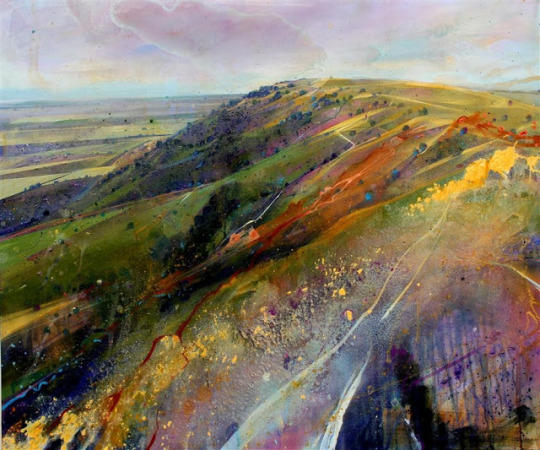



LORNA HOLDCROFT paints her beloved Sussex in UK. She says that although her landscapes might look imaginary, but she needs to visit the place and get a connection with it in order to paint it.
https://www.jacksonsart.com/.../my-deep-passion-for.../
4 notes
·
View notes
Text
Across The Divide: Diaries of a Manic Depressive
Chapter 1: The Fall
The stars twinkle with promise in the dark of night. On such a night, when there is no one out on the road but yourself you can drift to the middle of the road, to the other side, where surreality lies. The moon casts an ethereal pallor over the landscape. Those stars rush together and reality slows down, revealing its infinity. Slowly, you are drawn in, mesmerized by the white glare of the median, the painted dashes that separate you from the other side. It’s a fine white line, these dashes, which divide us from another world - one that separates dream time from reality.
When the car begins to drift to the middle of the road, most people will swerve back in their own lane. You will drift to the other side, across the divide and redirect. One fall, I experienced psychosis and found my car driving as fast as hell over that white dashed line. It is this line that separates life from ho hum to its most divine state. I remember this new reality, when it subsumed me, You will feel like what it is to “come home.” It is an illumination of a oddly familiar reality. Some who have experienced it keep tempting fate, crossing that dashed line. Most people never leave their side of the road, they have never experienced this delerium. The luckiest folks are those that have lived their lives on the dashes, some for only a minute or two. Some manage to stay back, some cross over and crash, some never return to the right side of the road.
In the beginning of mania you are smarter than you have ever been. In the beginning, you are funnier than you ever remember being. Like dashed lines flashing beside you, mania offers effervescence, charm, lightening fast wit, exuberance, passion, intuition, sensuality...those who have taken cocaine say it pales in comparison. If you’re lucky, you can get medicated early enough so that these faculties, cracked wide open and running full throttle, are sealed shut before you head into dangerous and unpredictable territory.
Speaking of roads travelled, the brain is like a super highway. The corpus callosum is a band that connects the brain’s two hemispheres with fifty-five million nerve fibres and keeps them in contact. MRI scans show this band overcompensating during mania, the brain lit up like a city night skyline. They have found strong callosum connections in autopsies of people with high IQs. Nonetheless, most folks aren’t geniuses and most folks aren’t riding the white line. I experienced using more than my usual share of brain power. However, one can only ride this surge for only so long, before you are drawn to another side, another reality. This side is orgiastic bliss. Very few people, about 3% of the population experience it. Very few can handle it. The contrast to reality is sharp. It is shocking and awesome and overwhelming. It’s a drug you didn’t choose, for it chooses you. You can’t help but be drawn in. Infinite nirvana awaits here. On this side, you don’t drive; rather, you are driven.
Some people with manic depression, now referred to as bipolar disorder, don’t take their medications because this is how they write their poems, their screenplays, the great novel. But beware! Beware! One must be very, very careful when driving on this side because you will crash. You can fall out of your car so quickly that it can take weeks, months or even years to recover, such as in my case. Many try to find a balance on this precarious journey. Others try to ride that dashed line their whole lives, crashing and getting up, crashing, and then sometimes being unable to get up again.
Imperceptible to me, I missed a turn off and arrived at the dreamtime. Space and time faded away. I was no longer in control. Imaginary hands guided my car into a new nightscape illuminated by an inverted sun. Sometimes, I remember this time, the fall, September 1994. When everything fell down, fell apart and was swept away. I thought that what happened that sublime September was somehow my fault.
2 notes
·
View notes
Text
SUNNY VIBES — List
Películas bajo el Sol como antesala de lo que se nos acerca. Vacaciones y amores, playas y cuentos de hadas, folclore, tradición y algún que otro misterio es lo que encontrarás en esta lista. Todo bajo el calor, ¡prepárate para el verano!
Movies under the Sun as a prelude to what is coming. Holidays and love, beaches and fairy tales, folklore, tradition and odd mysteries is what you will find in this list. Everything under the sunlight, get ready for summer!
youtube
Call Me by Your Name (2017) — Luca Guadagnino
Diego: La historia de amor de Elio y Oliver respira verano. Este film podría estar fácilmente en numerosas listas por varios motivos ya que, a pesar de ser un tema tratado en cine anteriormente, respira originalidad y frescura a través de todo su metraje. En ocasiones, no es tan importante qué se hace, sino cómo se hace. En ¨Call me by your name¨ Luca Guadagnino hace alarde de una mano artesana sublime. En su metraje, hay perfección en cada plano, escena, silencio o mirada. Su dirección, junto con el alarde interpretativo y química entre Timothée Chalamet y Armie Hammer, nos deja ser espías de un amor veraniego como pocas veces vimos antes. Hay electricidad en pantalla y la sentimos asi como sentimos lo prohibido y el atractivo de probarlo. De extrema sensibilidad, merece estar en esta lista por sus planos constantes de naturaleza y quietud bajo el sol de un pueblo italiano, su río, sus baños al atardecer, su escasez de vestuario… En fín, película veraniega con una historia que traspasa la pantalla, sientes como tuya y se queda en ti para siempre. Elio y Oliver existen en el imaginario colectivo y siempre se quedarán en ese verano eterno en Italia…
Elio and Oliver’s love story breathes summer. This film could easily be in different lists for various reasons because even being a famous topic touched in movies before, it’s freshly approached along the whole film. Sometimes, it’s not that relevant what’s done but how it’s done. In “Call me by your name” Luca Guadagnino shows off his sublime artisan hand. In his film, there’s perfection in every shot, scene, silence or gaze. His directing together with the amazing performance and chemistry between Timothée Chalamet and Armie Hammer, allow us to be spys and voyeurs of a summer love sotry we barely seen before. There’s electricity in the screen we feel as we feel the forbidden and the rush of testing it. Of extreme sensibility, this film worths being in this list for its amazing and constant shots of nature and stillness under the sun of a small italian village, its river, their baths, the lack of clothes… Anyways, a summery movie with a story that pierces the screen, makes you feel it like your own and remains with you forever. Elio and Oliver exist in the collective imaginary construct and they will always stay in that everlasting summer in Italy...
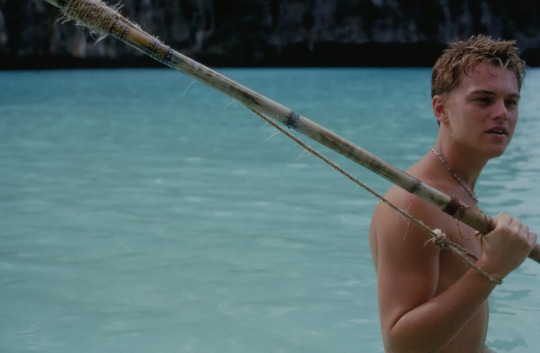
The Beach (2000) — Danny Boyle
D: ¨The Beach¨ es uno de esos casos de película maltratada en su momento por la crítica y público por motivos ajenos a la calidad de la misma.. El excelente Danny Boyle venía de haber cambiado el cine británico con ¨Trainspotting¨ y su incursión en Hollywood con el rostro de Leonardo DiCaprio acaparando su cartel cosechó todas las expectativas posibles y, una vez más, Danny Boyle hizo lo que quiso con su adaptación de la novela de Alex Garland. De esta forma, viajamos con Richard, el personaje de DiCaprio, a Tailandia, donde en busca de aventuras, acaba sabiendo de una paradisiaca isla, apenas tocada por turistas donde un grupo de viajeros han establecido una especie de utopía hippy que rápidamente atrapa al personaje de DiCaprio. Aquí, Boyle nos regala una disección de esta utopía y las dos caras de la misma a la par que del ser humano. Muy interesante ver como el paraíso se puede convertir en el infierno, motivado por la complejidad del ser humano y todo lo que compone nuestra psique. Las tremendas actuaciones, giros de guión, la música de Moby y sus parajes nos envuelven y trasladan a este paraíso soleado, donde querríamos quedarnos para siempre… al menos durante la primera mitad de la película.
“The Beach” is one of those cases of a movie beaten up by the press and the public when it was released for reasons beyond its quality. The excellent Danny Boyle was coming from changing british cinema with “Trainspotting” and his incursion in Hollywood with Leonardo DiCaprio’s face taking over the poster created all possible expectations and once again, Danny Boyle did what he wanted with the adaptation of Alex Garland’s novel. This way, we travel with Richard, the character played by DiCaprio to Thailand looking for adventures, where he ends up hearing of a heavenly island, barely touched by tourists where a group of travellers established a hippy utopia that quickly haunts DiCaprio’s character. Here, Boyle delivers a dissection of this heaven and its two faces as well as the complexities of the human mind. It’s really interesting to see how this paradise can easily turn into hell, motivated by human nature. The great performances, plot twists, Moby’s music and its beautiful settings involve us and take us to this sunny paradise where we would stay forever… or at least during the first half of the movie.
youtube
Spring (2014) — Justin Benson & Aaron Moorhead
D: Justin Benson and Aaron Moorhead son dos directores estadounidenses que tienen una clara pasión por el cine de terror o de corte fantástico. Su trabajo ha sido por el momento muy interesante con ¨Spring¨ siendo hasta el momento su mejor obra . ¨Spring¨ es soleada y tiene un aura veraniega en gran parte debido a que transcurre principalmente en un pueblo italiano, donde Evan, un joven norteamericano, viaja para aclarar su mente. Allí acabará conociendo una chica, Louise que es mucho más interesante de lo que parece en un principio. ¨Spring¨ es tan fantástica como original. No creo haber visto nunca película igual y por este motivo, entre otros, siempre ha tenido un lugar especial en mi memoria. Merecería estar en diversas listas por su mezcla de géneros tan bien equilibrada. No obstante, su mejor cualidad es su inteligente guión y lo bien dibujados que están sus personajes. Las situaciones que vive Evan al llegar a Italia y la facilidad para empatizar con él, su viaje y sus emociones son lo que nos hace quedarnos y seguirle, su historia de amor la que nos emociona y su originalidad narrativa y mezcla de géneros la que la hace difícil de olvidar.
Justin Benson and Aaron Moorhead are two american movie directors with a clear inclination and passion towards horror and fantastic genres. Their works had been really interesting so far, with “Spring” being their best work yet. “Spring” is really sunny and has a summery vibe all the way caused mainly by its setting, taking place in an italian village where Evan, a northamerican young man, travels to clear his mind and will end up meeting an attractive woman, Louise, who’s much more interesting than it seems at first. “Spring” is as fantastic as original. I don’t think I’ve ever watched such a movie like this one and for this reason, among others, it always had a special place in my memory. It would be worthed it being in numerous lists for its mix of really well balanced genres. Nevertheless, its best quality is its intelligent script and how well portrayed their characters are. The situations lived by Evan in the movie when he gets to Italy and the easiness to empathize with him, his trips and his emotions are what makes us stay and follow him through the movie. His love story is what move us and its original narrative and mix of genres what makes it difficult to forget.
—

The Fall (2006) — Tarsem Singh
Adrián: Esta joya de producción India fue dirigida por Tarsem Singh durante 4 años y en 28 países diferentes. Es una historia épica llena de fantasía que me habría encantado escuchar siendo niño, aunque en eso me convertí cuando la vi por primera vez. Destacaría las interpretaciones de Lee Pace y Catinca Untaru, los dos protagonistas, quienes consiguen darle una intriga increíble a la película. Pero no puedo dejar de hablar de los paisajes... La ambientación y fotografía, dominada por escenas bajo el sol abrasador de Oriente Medio, muestran un espectáculo audiovisual a la altura de lo exótico de la cinta. Una espectacular y entretenida película que hará las delicias de nuestro niño interior, que nos hará viajar a los confines de nuestra imaginación.
This Indian production is a hidden jewel directed by Tarsem Singh for 4 years and in 28 different countries. It is an epic story full of fantasy that I would have loved hearing as a child, and yet that's what I became when I first saw it. I would highlight Lee Pace and Catinca Untaru’s acting, the two protagonists, who manage to give an incredible intrigue to the film. But I must talk about the landscapes... The setting and cinematography, dominated by scenes under the scorching sun of the Middle East, present us an audiovisual spectacle at the height of the film’s exoticness. A truly entertaining film that will delight our inner child, that will make us travel to the limits of our imagination.
youtube
Le Mépris (1963) — Jean-Luc Godard
A: “Le Mépris” nos muestra la grieta que se abre en la relación de una pareja, somos testigos de las terribles consecuencias que tiene el más simple arañazo si no es reparado y esto nos ayuda a entender lo importante que es la comunicación sincera.
Godard conjuga esta historia con metacine, pues todo gira en torno al encargo que recibe Paul Javal (Michel Piccoli) para participar en la próxima película del director alemán Fritz Lang (que se interpreta a sí mismo). Aquí entran en juego las sunny vibes: el set de rodaje se ubica en la isla italiana Capri, un entorno idílico del Mar Mediterráneo con un clima soleado perfecto. Asistimos a este fatal malentendido como un miembro más del equipo de producción gracias a la dirección de Godard, que nos muestra un paraje de lo más veraniego.
Es difícil olvidar la magistral banda sonora de Georges Delerue, la belleza del entorno, la sensual y dolida mirada de Camille (Brigitte Bardot) o los paseos de Paul bajo el sol.
"Le Mépris" shows us the crack that opens in the relationship of a couple, we witness the terrible consequences of the simplest scratch if it’s not repaired, helping us to understand how important sincere communication is.
Godard combines this story with metacinema, since everything revolves around the commission that Paul Javal (Michel Piccoli) receives to participate in the next film by the german director Fritz Lang (who plays himself). Here the sunny vibes come into play: the film’s location is the italian island of Capri, an idyllic setting in the Mediterranean Sea with perfect sunny weather. We attended this fatal misunderstanding as one more member of the production team thanks to the direction of Godard, who shows us a most summery setting.
It is difficult to forget the masterful soundtrack of Georges Delerue, the beauty of the surroundings, the sensual and hurt gaze of Camille (Brigitte Bardot) or Paul's walks under the sun.
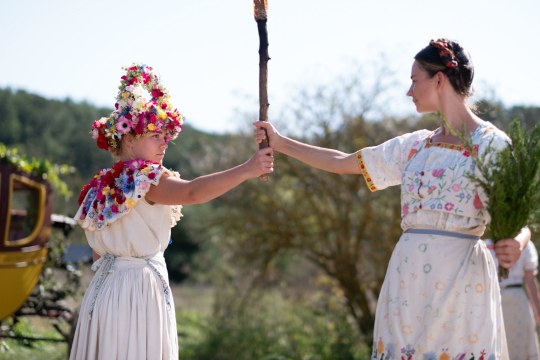
Midsommar (2019) — Ari Aster
A: A pesar de quitarnos las ganas de un festival europeo folclórico a medida que el metraje avanza, Ari Aster logra ambientar su película bajo un sol persistente. Por todos es bien conocido que la oscuridad es un elemento a tener muy en cuenta en el género de terror, y aun sin serlo es un recurso muy utilizado para provocar sensaciones de angustia, miedo o incertidumbre. En “Midsommar” no es así, en esta película sentimos todo y más sin necesidad de perdernos detalles por falta de luz. En este ambiente veraniego y de apariencia calmada no nos perderemos ni un solo detalle, incluso se nos auguran acontecimientos antes de verlos en pantalla. La puesta en escena de Aster es magistral en este aspecto, dándonos a conocer los entresijos de su película y haciendo evidente lo que puede suceder nos retorcemos en la butaca.
Gran terror psicológico, no apto para estómagos sensibles, que nos hará viajar a una remota aldea de Suecia durante el solsticio de verano.
Despite taking away the desire for a European folk festival as the movie goes on, Ari Aster manages to set his film in the lingering sun. It is well known that darkness is an element to be taken into account in the horror genre, even in any other genre it is a widely used resource to provoke feelings of anguish, fear or uncertainty. In “Midsommar” it’s not like that, in this film we feel everything and more without missing details due to lack of light. In this summery and calm-looking environment we won’t miss a single detail, events are predicted before we see them on screen. The staging of Aster is masterful in this regard, making us aware of the ins and outs of his film and making evident what can happen, we writhe in our seat.
Great psychological terror, not suitable for sensitive stomachs, that will make us travel to a remote village in Sweden during the summer solstice.
youtube
Pájaros de verano (2018) — Ciro Guerra & Cristina Gallego
A: Incursión en la cultura colombiana de producción sublime. “Pájaros de verano” es una película que puede tener varias lecturas. Ambientada en los años 70′ muestra el inicio del narcotráfico y cómo una familia indígena del desierto de Guajira hace frente a esta situación. Con la creciente demanda de droga el dinero llega a una familia que se enfrenta por primera vez a la ambición de poder desmedida que los billetes encienden en las personas. Una lectura sobre el orígen del desarrollo moderno y su impacto en las culturas antiguas.
Con una fotografía espectacular y un ritmo pausado, contenido, me recuerda a un Nicolas Winding Refn que intercambia los neones y estilo pop por la crudeza de la tradición. Es tan lenta y violenta como soleada, así que pónganse mucha crema.
Sublime production as an incursion into the colombian culture. "Pájaros de verano" is a film that can have several readings. Set in the 70s, it shows the beginning of drug trafficking and how an indigenous family from the Guajira desert copes with this situation. With the growing demand for drugs, the money reaches a family that is facing for the first time the ambition of excessive power that bills ignite in people. A reading on the origin of modern development and its impact on ancient cultures.
With a spectacular cinematography and a contained rhythm, it reminds me of a Nicolas Winding Refn exchanging neon and pop style for the harshness of the tradition. It is as slow and violent as it is sunny, so have plenty sunscreen.
3 notes
·
View notes
Photo
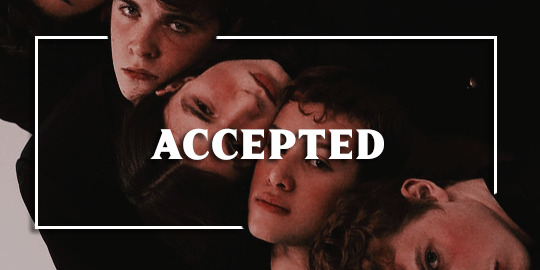
Congratulations DEAN! You’ve been accepted as ARIEL.
Dean, you don’t know how overjoyed I am to have you and your take on Lenox back in my life! Lenox is one of my favorite skeletons and you just capture him so perfectly. For Lenox, the devil is literally in the details, since he has the ability to control how they’re perceived. I love everything about him, especially when I view him through the lens you crafted (or is it the lens he crafted, and I’m actually under the spell of his powers right now? my brain hurts)! I can’t wait to see the havoc you and Lenox unleash on this dash.
Welcome to Mutants Rising! Please read the checklist and submit your account within 24 hours.
its britney bitch
NAME/ALIAS: Dean
PRONOUNS: She/her
AGE: 22
TIMEZONE & ACTIVITY LEVEL: GMT, i’m fairly active bean and am always here to plot
In Character Information:
DESIRED ROLE: Lenox Syed
GENDER/PRONOUNS: Cismale, he/him
DETAILS & ANALYSIS: This is where you show us who the character is to you! The format of this doesn’t matter, whether it’s in bullet points or in para form, and can be as long as you’d like it to be. Feel free to get creative!
Lenox as a boy’s name is of Scottish and Gaelic origin, and the meaning of Lenox is “with many elm trees”.
Syed or Sayyid or Sayed (Arabic and Urdu: سيدعلی) is a family of Syeds in South Asia, notably India and Pakistan. Syeds are the direct descendants of the Islamic Prophet Muhammad.
Lenox is lost in his own fantasy world. Creating so many illusions for people each day that he has become lost in one of his own. With a lack of attention through his childhood, he craves the limelight and approval of everyone around him and will do pretty much anything to get it, even if it’s false or trickery.
He’s so painstakingly constructed, he’s his own work of art. Each detail of his personality and appearance delicately manipulated into something strikingly beautiful. Someone you can look at with awe just by the way they talk or move. It’s almost hard to realise there’s another man beneath the mask, someone raw and damaged. Like a bird with a broken wing.
BIO:
Tw: Drug mention
His mother is just fifteen when she gives birth to him, swaddled in a blue blanket and passed immediately to the arms of a doctor; she never held him, never looked at his freshly reddened face as his cries wailed down the corridors. It’s not because of his mutation, not because his birth family couldn’t bare to raise a being burdened with powers. She was a child herself, naivety leaving adoption as the only logical decision.
A foster home decides to take him in, raising him from infancy without any awareness of any abnormality. It’s where he stays for the first nine years of his life, a cosy house in Oregon that housed five other children. But the dormancy of his powers didn’t stay concealed forever. It started with his foster siblings sleepwalking, Lenox’s dreams imprinting on them accidentally as they’d trample through the house enthralled by the vivid illusions of his fantasy worlds. Then it began intertwining into everyday life, emotional outbursts of temper alluding unsafe situations like fire or monsters that hid under the bed. Games became near impossible to differentiate between make believe and reality from the second he joined in.
“You’re unsafe,” it’s a comment he’d gladly wear as a badge of honour once he’d matured. But to the little boy being dragged away from his foster family, betrayed by his caregivers and turned in for research, the words grazed his skin like stinging nettles.
The four plain walls of the room only further ignite an overly active imagination, a tool that was dangerous to have with a power like his own. The eleven years he spends there does the opposite of what society would have hoped, boredom allows for focus and practice, it sharpens his talents and he’s able to put them to good use. By the end of his stay the doctors had favoured him among the rest, because he wills it so. They go easy on him, carefully placed illusions write false notes on his reports. Detailed and intricate enough so that he doesn’t get caught out, handwriting remarkably identical to each nurse or scientist that take their turn testing on him. He starts to admire the way it feels, too chaotic to be part of society and embedded with more potential than anyone could have known.
It’s when that potential reaches a point where imagination can no longer be imprisoned by those four walls that he decided enough was enough. The process of discharging himself was a meticulous operation. Theatrically staged and miraculously timed with an annual cell collecting test. Before he can be sedated he’s enticed the nurses into an imaginary induced coma, deep enough into his intoxication that he can use the poisoned needle on them. The theater only has the two women on the floor when the doctor enters, sly projections manipulating each person he’d bumped into on his way to the exit into that same sleep, a psychedelic world of kaleidoscope landscapes and stained glass colours, once awakening they would never see this boy again.
“You’re unsafe,” the same words, just a different context. An ally ushers him to leave Oregon and head to Chicago. A place where policies were loosened and his own kind somewhat tolerated.
The new city put Lenox’s own fresh start in full swing.
Fragile reality was a vehicle for his reinvention, so easily malleable that to change it was simpler and more natural to him than breathing. He’s masterful in the way it’s applied, diminishing a past life of shame and grit in place of high strung worth and superiority. He’d created himself with utter royalty, his own nobility evident by the way in which he moved, regally eloquent and unmistakably ethereal to anyone who crossed his path.
He builds his career on the sins he knows other’s desire. Selling crushed up aspirin as a party drug in the underbelly of the city’s night clubbing scene, using his power to make it seem as if it were the legitimate stuff and not something that cost him a couple bucks from the convenience store across the street. Lenox could make them see whatever he wanted, turn their evenings into a production of his own design and leave with none of the being any wiser. It’s how Benjamin Granger catches word of him, a supposed mutant that was living life as if he were a king. He’s the first person to ever acknowledge his capability, strikes him up an offer he couldn’t refuse. Drawn like a moth to a flame after the slightest suggestion of power and the infatuation that he was finally wanted by someone and to belong to something.
EXPANDED CONNECTIONS:
Chance Matthews: He’s the face he can’t erase from his mind, the curve of his lips engraved in deep fixations when he couldn’t fall asleep on a Sunday night. Perhaps it’s the fact that he shouldn’t do it that makes it more enticing, a lust to ignite underlying passion to unearth exactly what they had both been burying.
Jordan Rojas: Jordan is somewhat of a curiosity for Lenox to unpick. A closed book that is intriguing because of their close association together. Always keen to show his worth, to prove himself to those around him, perhaps it’s a dangerous combination should Jordan utalise the other’s naivety in combination of his powers in the way that Benjamin does.
Jack Mizuno: He likes that he can get so deep into their head, that he can have full control of a world that wasn’t Jack’s domain. It’s all to do with power and annoyance, a deep craving to see exactly how far he can push people before they hit their breaking point. Even then, it’s fun to flip that breaking point into a place of pure bliss and drop it again just when his subject is at ease. He’s like a lab rat, someone he tries his tricks on before taking them to the main show.
EXTRA:
https://www.pinterest.co.uk/dean_ie/ariel/
Lenox spends a lot of his spare time writing and doodling. It’s all extremely sketchy, there’s never any sort of final draft. It helps his imagination, which is a much exercised tool in his life.
He is probably more invested in mental health than most. Meditation and yoga being a crucial part of his daily routine after a bowl full of sugar packed cereal.
He’s naive and eager to please anyone that might create a bond with him, he craves companionship after never really understanding it due to the absence of it in his life.
Lenox works as a part-time artist and painter, he’s guilty of using illusions to get clients to buy his art by playing into their preferences .
He also works as a drug dealer, never selling legitimate stuff but using over the counter medicines with the combination of his powers to masquerade as the real stuff.
He has an unruly sweet tooth. He keeps lollipops in his back pocket and will order dessert off a menu at a restaurant instead of a main meal. His favourite thing on the planet is warm cookie dough and ice cream.
He listens exclusively to Grunge music. Celebrity Skin by Hole is his absolute jam and he only ever sings Are You Gonna Be My Girl by Jet is his go to karaoke song.
Lenox is openly proud of his sexuality as a homosexual, though he’ll flirt with anyone and anything for the fun of it.
He prefers tea over coffee.
He’s a bit of a poetry dork, he collects first edition poetry books and his most prized possession is a first edition of Howl and Other Poems by Allen Ginsberg.
He’s very judgemental of how others present themselves and will tell you if your new shirt is ugly.
Lenox lives in a small apartment, anyone that enters he’s carefully to make them see it as 3 times bigger than it actually is with far more light.
He has a fear of heights.
2 notes
·
View notes
Text
I was reading a W.H. Auden poetry collection and among the poems there’s the opening from The Mirror and the Sea (Prospero to Ariel), which is basically Auden’s reinterpretation of Shakespeare’s The Tempest.
I found it mesmerizing in general, but this specific part made me think:
Tell then of witty angels who
Come only to the beasts,
Of Heirs Apparent who prefer
Low dives to formal feasts;
For shameless Insecurity
Prays for a boot to lick,
And many a sore bottom finds
A sorer one to kick.
Morrissey wrote a song called Heir Apparent which, according to Mozipedia, is about him “returning home to Manchester only to spot an idealistic younger version of himself about to follow his footsteps to London with ‘wide-eyed’ dreams of success. The singer is unnerved by his heir’s seeming naiveté, warning him of the perils of an industry destined to ‘seduce your heart then smack your arse’. Yet beneath his sage cautioning, there’s the implicit jealousy of a corrupted veteran longing to relive his own lost youth, as if irritated by his handsome young successor’s ‘winning smile’.”
While I mostly agree with this interpretation, there are some other parts of this poem that make me think there’s more than meets the eye (especially if we consider that: a) Auden was gay; b) this was around the time of the Joyce trial, when Morrissey was reunited with the rest of The Smiths after a long time).
Specifically:
Inform my hot heart straight away
Its treasure loves another,
But turn to neutral topics then,
Such as the pictures in this room,
Religion or the Weather;
Pure scholarship in Where and When,
How Often and With Whom,
Is not for Passion that must play
The Jolly Elder Brother.
(according to the book’s footnotes: The Jolly Elder Brother = a platonic love)
and also:
Are you malicious by nature? I don’t know.
Perhaps only incapable of doing nothing or of
Being by yourself, and, for all your wry faces,
May secretly be anxious and miserable without
A master to need you for the work you need.
Are all your tricks a test? If so, I hope you find, next time,
Someone in whom you cannot spot the weakness
Through which you will corrupt him with your charm.
Mine you did
And me you have: thanks to us both, I have broken
Both of the promises I made as an apprentice; -
To hate nothing and to ask nothing for its love.
Ofc this is nothing but pure speculation, but let’s say Morrissey = Prospero and Johnny = Ariel.
This looks to me as if Prospero is worried about Ariel not needing him anymore, but he’s also reproaching him for tricking him with his charm and taking advantage of him.
(And here I can’t help but think of how recurring the word charm was in The Smiths’ work...
This Charming Man...
That part in Hand In Glove: “For the good life is out there somewhere / So stay on my arm, you little charmer.”
That part in I Know It’s Over: “With your triumphs and your charms / While they’re in each other’s arms.”
And also in Morrissey’s solo years, in Seasick Yet Still Docked: “Wish I had the charm to attract the one I love / But you see, I’ve got not charm”.)
Bear in mind I haven’t read The Tempest, so I’m only vaguely familiar with the original plot, but this reads to me like blatant homoerotic subtext.
It’s like Prospero and Ariel were lovers, but Prospero now regrets their relationship because he feels like Ariel played him and left him with nothing.
Then there’s this part:
I am very glad I shall never
Be twenty and have to go through that business again,
The hours of fuss and fury, the conceit, the expense.
If we go back to Heir Apparent, that’s basically what the song’s about, even though there’s also an underlying current of nostalgia.
(”You think it’s so easy, I tell you - it isn’t.”)
And then... there’s this:
Now our partnership is dissolved, I feel so peculiar:
As if I had been on a drunk since I was born
And suddenly now, and for the first time, am cold sober,
With all my unanswered wishes and unwashed days
Stacked up all round my life; as if through the ages I had dreamed
About some tremendous journey I was taking,
Sketching imaginary landscapes, chasms and cities,
Cold walls, hot spaces, wild mouths, defeated backs,
Jotting down fictional notes on secrets overheard
In theatres and privies, banks and mountain inns.
If you’ve read Morrissey’s Autobiography, you will surely remember how LONG and excruciatingly detailed the part about the Joyce trial is. Like, I’m pretty sure he wrote it that way as a form of therapy for himself.
Also, he was very disappointed in Johnny’s behaviour and in what he perceived was a lack of loyalty towards him but I feel like that experience, as bad as it was, must have been freeing as well.
Like, imagine: you stand by your best friend no matter what but, when you’re the one struggling, they leave you to fend for yourself in order to save their own skin.
As heartbreaking as that is, after a while you may start feeling like a weight has been lifted off your shoulders. You don’t need to cover for them anymore, you can go and live your own life without worrying about them, much in the same way they have.
To be clear, I don’t think that the trial’s result was as unfair as Morrissey depicted it (that entire situation was a huge mess from start to finish), but it clearly affected him in a deep way, so much so that he moved to the US shortly after the final sentence was announced.
(It’s interesting to note that in the poem, Prospero is also about to leave the island he shared with Ariel.)
Then there’s this part, which might be my favourite:
Can I learn to suffer
Without saying something ironic or funny on suffering?
I never suspected the way of truth
Was a way of silence where affectionate chat
Is but a robbers’ ambush and even good music
In shocking taste; and you, of course, never told me.
[...]
I see you starting to fidget. I forgot.
To you, that doesn’t matter.
Considering the fact that Morrissey made an entire career out of writing ironic songs about his suffering, I think he would find those first two lines way too relatable.
As for the rest, it feels like Prospero learned the hard way that being too frank with your own feelings can cause more trouble than relief and he resents Ariel for not warning him of this beforehand, but at the end that doesn’t matter, because Ariel has his own life to take care of and he will be fine even without Prospero.
(Here, I can’t help but think of I Keep Mine Hidden: “Hate, Love and War / Force emotions to the fore / But not for me of course, of course / I keep mine hidden / But it’s so easy for you / Because you let yours flail into public view.”)
The poem ends like this:
Sing, Ariel, sing,
Sweetly, dangerously
Out of the sour
And shiftless water,
Lucidly out
Of the dozing tree,
Entrancing, rebuking,
The raging heart
With a smoother song
Than this rough world,
Unfeeling god.
O brilliantly, lightly,
Of separation,
Of bodies and death,
Unanxious one, sing,
To man, meaning me,
As now, meaning always,
In love or out,
Whatever that mean,
Trembling he takes
The silent passage
Into discomfort
It’s time for Prospero to leave his island, and for Morrissey to leave his past behind.
#the smiths#morrissey#johnny marr#marrissey#wh auden#does anyone care abt this? probably not#will that stop me from ranting into the void once again? also no.
18 notes
·
View notes
Photo
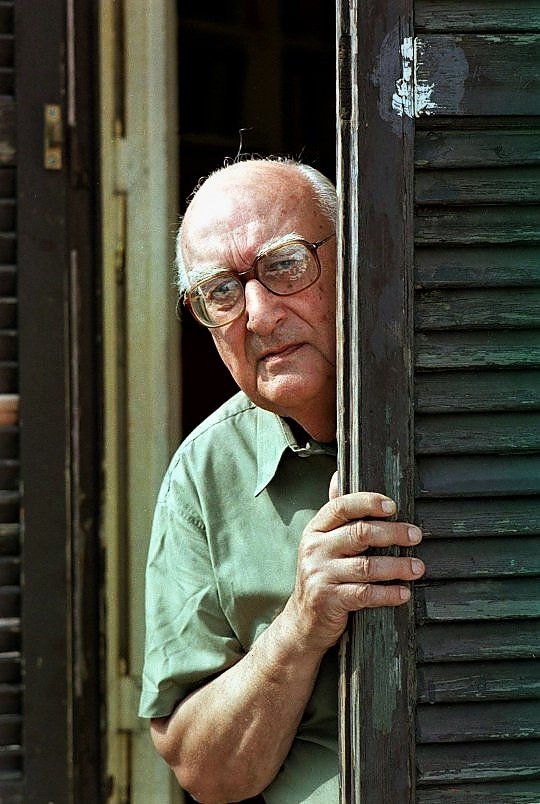
Andrea Camilleri, the Sicilian author behind the popular Inspector Montalbano television series, has died aged 93.
One of Italy's best-loved writers, he had been admitted to a hospital in Rome last month after a cardiac arrest.
The crime writer was best-known for his detective books starring inspector Salvo Montalbano based in the fictional Sicilian town of Vigàta.
The adapted Rai TV series was loved in Italy and became popular in the UK, US, France, Spain, Germany and Australia.
Camilleri lost his sight in recent years but said in 2017 it had allowed him to picture things more clearly.
"I am blind, but losing my sight made all my other senses come back to life," he said. "They have come to the rescue. My memory has improved, and I remember more things than before with great lucidity, and I still write."
Camilleri and Inspector Montalbano changed people's minds about Sicily.
Together, over a period of 25 years, they transformed a grim landscape of mobsters and mafia violence to a light-hearted, humorous, food-focused near-paradise of an imaginary town called Vigàta.
No other mystery plots have narrated the Sicilian "gioia di vivere" (joy of life) so effectively and with such a colourful protagonist: a detective whose days involve morning swims, spaghetti with clams and an onslaught of hilarious malapropisms from an illiterate receptionist at the local police station.
Where else can you find a coroner with a secret passion for cannoli, the cream-filled tubes of Italian pastry.
For London-based Sicilian writer Simonetta Agnello Hornby, Camilleri is "by far the greatest Sicilian writer since the Second World War".
"He should have been put forward for the Nobel prize," she said, adding that he was "a man of great intellect, of immense culture and strong and unwavering left-wing principles that, if anything, grew over the years".
"His passion for justice and support of those less fortunate, be they poor Italians or refugees or boatmen coming from Africa, never wavered."
Camilleri wrote more than 100 books. His stories were fiction, but influenced by current affairs or the result of hours of scouring the archives.
The Montalbano novels, each of them published in a 180-page format - 18 chapters of 10 pages - have achieved worldwide sales of 25 million and have been translated into 120 languages.
His most recent, Alcyon's Cook, was published in May in Italy and quickly became a bestseller.
Camilleri's final book in the series, entitled Riccardino and written in 2006, remains with his publisher, locked in a cabinet in Palermo under agreement that it be printed at a later date.
The writer's fame was amplified when his stories were adapted for television: his 24 novels and 10 short stories were made into 34 episodes and distributed in some 60 countries to date.
The Montalbano TV mysteries, first broadcast in May 1999, celebrated their twentieth anniversary last month.
Italians' interest in the character of Salvo Montalbano was ignited with The Shape of the Water, published in Sicily by Sellerio in 1994. At that time, Camilleri was already a 67-year-old pensioner having left a successful career as a director and TV author.
Readers quickly developed a fondness for Montalbano because of his values: a policeman with an high sense of respect for people, with impeccable honesty and a strong dislike for bureaucracy.
They grew to admire his relatable humility, his stubbornness, his grouchy approach and his solitary spirit - he loves eating alone, in silence.
Through his books, Italian readers also got the opportunity to rediscover the importance of Sicilian dialect.
Camilleri's use of Sicilian expressions - infusing the Italian language with Sicilian mother tongue - helped promote the island's culture, making people rethink their history.
In Sicily, his work is now studied in schools.
The character of Catarella - the comical illiterate police officer who talks incomprehensibly in a mix of bureaucratic Italian and dialect - is amusing both in Italian and in English, as translated by Stephen Sartarelli.
Montalbano seizes the imagination of a wide audience with descriptions of the picturesque seafront in the fictional Vigàta, the view from the terrace of the detective's house, the culinary surprises of his housekeeper, Adelina, and the feasts at the restaurant Calogero.
Italian police tweeted: "An affectionate arrivederci to Andrea #Camilleri. The Commissario #Montalbano has revealed so much of our jobs, bringing to light the humanity of policemen always at the service of the community. We will miss you, Maestro."
Daily inspiration. Discover more photos at http://justforbooks.tumblr.com
18 notes
·
View notes
Text
Things i appreciate of Star vs The Forces Of Evil
It's perfectly imperfect charactera created not only with black or white, but as different shades of grey
It's imaginary world where magic is not only real but very complicated
It's landscapes
It's representation of minority groups as a part of our normal society
It's spells and magic poems
How while cheesy and all rainbow-y the show looks, if you take a deeper look it definitely has a darker undertone
How it's shipping episodes drove half of the fandom crazy and the other half just angry, but even with that the did show a accurate representation of what dating as a teenager is. (I say that because I grew with the show and I as a teenager now going to adulthood I can very much confirm all my friends went through that dating phase)
How the show isn't scared of telling young audiences about actual real world problems
How the show pushes it's limits to the breaking point
How the star vs crew interacted with us through the whole run of the show
How it's voice actors are just pure talent
Adam McArthur breaking stuff in front of everyone at San Diego Comic Con
@daronnefcy 's energy and passion put into this whole show.
How weird is it that while there's a lot of fantasy in this show it seems also kind of real
It's music
But like really, Brian in its own glory
Just @brianwithanh
The character growth (like watch the first episode vs the last one and I dare you tell me I'm wrong)
The spin offs created by fans thanks to the show
The artists that found their passion thanks to the show and that some of them will probably grow in future animation proyects that will brake even more barriers
It's acction packed scenes
It's progressive lore
The whole crew, from voice actors to story boarders, to writters, to storyboard revisionists, sound engineers, composers, concept creators and even more that we don't see often
Every single panel in every single convention
How it's fanbase its formed by adults, children, teenagers, Hispanic, american, Asian, alien, ponys (what I'm trying to say it's how diverse it is)
And honestly I just can go on.
I promised I won't cry, but here we are at the endgame now.
That's enough, now let's go cleave some stuff.
34 notes
·
View notes
Text
A Unique Spin on the Fantasy Genre
from the blog It Came From the 20th Century, filmmaker Jonathan R. Skocik:
Okay, strictly speaking, this falls outside the parameters of this blog, since it is not from the 20th century. However, I’m making an exception in this case because I want to help promote an excellent book that deserves to be read.
Elves, castles, magic, kings and queens, swordplay, imaginary languages – yes, we’ve seen all this before, and Alyssa Marie Bethancourt’s debut novel, Mornnovin has them in droves. That is not to say these elements are automatically tired in any way. There’s a reason we keep revisiting them. But in the wrong hands, they can admittedly feel stale or even silly. Fortunately, Ms. Bethancourt knows her genre, and navigates the material with ease. The best fantasy will make you forget that it’s fantasy, allowing you to completely buy in to what you’re reading. Mornnovin is such a novel. Beyond this, however, and perhaps more importantly, it gives us a wholly fresh perspective in that the author is autistic, and her elven characters are also coded as such.
Bethancourt’s elves are emotional basket cases. Their feelings run the gamut, their internal lives raging storms of passion, guilt, and self-recrimination, yet they are expected to maintain a veneer of stoicism that would make Mr. Spock proud, even to the point of making elaborate hand gestures to indicate their feelings rather than allow a genuine emotion to reach their faces. These elves are no Vulcans, though, and their ability to maintain this cool facade is, shall we say, less well-perfected than their sci-fi counterparts. This is, in fact, an amazingly on-point depiction of the autistic experience. People on the spectrum spend most of their lives learning to hide what they’re really feeling, having been told over and over that their expressions of emotion are inappropriate. For this reason, autistics are often viewed as cold, rude, and distant. But this is largely learned behavior, the only reaction that makes any sense when it seems like everything you do is wrong.
That Bethancourt’s autism stand-ins are literally not human reflects the feeling many on the spectrum experience of not really being a part of humanity, of being aliens in their own world. This is further illustrated by the state of isolation in which the elves of Mornnovin have placed themselves. They live in Evlédíen, also called the Valley, hidden away from the rest of the world to protect themselves from the humans who once tried to exterminate them. The Purification, as the humans call it, could be viewed as a parallel for the erasure experienced by autistic people every day. Often, the lives and perspectives of the autistic community are ignored. The clueless and ignorant have even gone as far as to say that autistic people are not even really people, and that those on the spectrum actually have no inner life, no genuine feelings or sense of identity. What is this if not a low-key extermination, if not in fact, at least in spirit?
Onto this stage emerges our heroine, Loralianasa Raia, nicknamed Lorien. Though she’s over a hundred years old, she’s only just on the cusp of adulthood in elf terms. As the crown princess whose parents have long-since been murdered, she now faces the unwelcome responsibility of ruling her people. To make matters worse, this coincides with a global war among the humans as well as a sinister plot that soon drags the elves back onto the world stage. Lorien now faces the almost unthinkable decision to expose the existence of her people to the rest of the world in an effort to save the very people who once brought them to the brink of extinction. This funhouse lens coming-of-age story perfectly illustrates the exaggerated gravity that an autistic person faces upon joining the adult world. In much the same way that Joss Whedon’s Buffy the Vampire Slayer used monsters as a metaphor for growing up and learning adult responsibility, so does Bethancourt use her fantasy landscape of imagined cultures in a global war engineered by a vengeful sorcerer.
Of course, no coming-of-age story would be complete without a romance, and Bethancourt does not fail to deliver the goods. The concept of lovers bound by a telepathic link has perhaps been done to death in numerous online fanfics, but this manages to feel fresh, perhaps because of the earnestness with which it is written. It might also have to do with how truly endearing the love interest is. Naoise (pronounced Nee-shuh) Raynesley is the prince of Grenlec, a kingdom at war with their longtime rival, Telrisht. We meet him in the first chapter and there’s instant sparkage with Lorien. He’s bright, kind, open-minded, thoughtful, and witty. Indeed, he borders on being a Mary Sue, though thankfully never quite crosses the line. By the end of their first encounter, Naoise and Lorien are mystically joined, and though separated afterward for a large chunk of the story, their love grows stronger and stronger through the psychic bond they don’t even know they share. Visiting each other in dreams, they become each other’s only solace from the hellscape their world has become – though Naoise arguably has it worse, being that he’s stuck on the front lines of a battle that seems frustratingly unwinnable for reasons that will eventually become ominously clear.
As the story unfolds, we’re introduced to a colorful cast of supporting characters as intriguing and memorable as anything offered up by J.K. Rowling, Marvel, or even Tolkien himself. There’s Lorien’s sister Lyn, who having been raised away from her people has never learned their stoicism and therefore expresses herself with some delightfully creative profanity. We’ve also got Naoise’s womanizing brother, who manages to be charming despite being a total heel; a mercenary named Cole who struggles to outlive his shady past; the brusque elf warrior Sovoqatsu questing to fulfill a sense of purpose; and Sefaro, a good-natured ambassador from a distant country who serves as the moral compass of the group. Aside from the main party, there’s Lorien’s taskmaster guardian, Tomanasil; Naoise’s overbearing father, King Lorn; and a mysterious fairy named Sun.
But the greatest gem, for me at least, is the villain, Kataki Kurome, a sorcerer grieving over the murder of his wife at the hands of the humans. He engineers the war between Grenlec and Telrisht as a way to thin the herd and lessen the task he’s set for himself of annihilating humanity. He easily could have been a thinly-written mustache twirler, but Bethancourt gives him depth, pain, and a cold civility that at once makes him relatable and utterly terrifying. His cold determination, detached sense of purpose, devious craftiness, and sheer power make him seem utterly unbeatable. This, coupled with his age and inflexibility make him the perfect foil for the young and idealistic Lorien, who was already overwhelmed by the adult world even before the shit hit the fan.
No character is ignored, and Bethancourt not only gives depth and individuality to all of her primary characters, but breathes life and personality into even the most minor characters. Such a task naturally requires a lot of breathing room, and Mornnovin is not a short book. But it never overstays its welcome, and indeed the epic scope of the proceedings demands the necessary space to unfold. Beyond that, the pace never wavers, and the novel’s bulk is never daunting. Quite the contrary. This is the kind of expertly-woven story that draws you right in and keeps you anticipating each new development. Mornnovin isn’t just one of the best fantasy stories I’ve ever read. It’s easily one of the best novels I’ve read in recent memory, and I eagerly await the next installment in the series, due out next year.
Mornnovin is printed by Dogwood House press and is available from all major online booksellers.
Full disclosure: I am married to the author. However, this is my honest assessment of the piece.
-- Jonathan R. Skocik
2 notes
·
View notes